

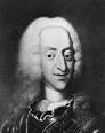



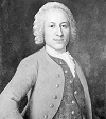
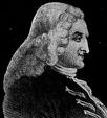

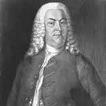
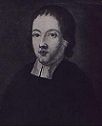





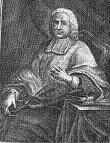






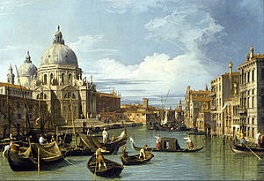
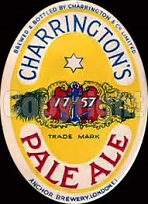
1730 Julian calendar slip: 11 days. Pop. of the Am. colonies: 600K; in this decade Irish immigrants settle in large numbers in Philadelphia, Penn. On Jan. 30 (Sun.) tsar (since 1727) Peter II (b. 1715) dies of smallpox on his wedding day, and his bride is pushed into his deathbed in hopes of producing an heir, but it doesn't work, and the direct male Romanov line ends; Anna (Anne) Ivanovna (Ioannovna) (1693-1740), duchess of Courland, daughter of Peter I the Great's half-brother Ivan V is elected Russian Romanov tsar #8 by the privy council (until 1740), and after getting her to sign an agreement limiting her power before she arrives in Moscow, she stages a coup on Mar. 8 and executes or exiles the members, then goes on to bring in her Courland hunk (grandson of a groom) Ernst Johann Biren (1690-1722), and rule with an iron hand, killing thousands of her subjects and exiling thousands more to Siberia. On Feb. 21 Pope (since 1724) Benedict XIII (b. 1649) dies after letting leeches sponge off him while his head's in the clouds, and on July 12 Florentine-born Lorenzo Corsini is elected Pope (#246) Clement XII (1652-1740) (until Feb. 6, 1740). On June 11 Whig statesman Charles, 2nd Viscount Townshend (1674-1738), Sir Robert Walpole's brother-in-law becomes pres. of the privy council (until June 25, 1721), after which he retires to his Raynham Hall estate in Norfolk, leaving Walpole as the sole minister in the British cabinet, and begins the 4-course system of husbandry, growing turnips on a large scale to feed his cattle during the winter so they don't have to be slaughtered, earning the nickname "Turnip Townshend". On Aug. 10 Jonathan Belcher (1682-1757) (first Am.-born Mason) is appointed royal gov. of Mass. and N.H. (until Sept. 7, 1741). On Sept. 3 Sardinian king (since 1720) Victor Amadeus II abdicates after going semi-insane, and his son Charles Emmanuel III (1701-73) becomes king of Sardinia and duke of Savoy (until Feb. 20, 1773). On Sept. 17 a disastrous war with the Persians causes a revolt by 12K mostly Albanian Janissaries led by Albanian-born ex-Janissary Patrona ("vice-admiral") Khalil (Halil) Isyani (1690-1730) (Turkish bath waiter), killing grand vizier Nevsehirli Damag Ibrahim Pasha and forcing sultan (since 1703) Ahmed III (b. 1673) to abdicate and lock himself back in his cage, and on Sept. 20 his nephew Mahmud I (1696-1754) becomes Ottoman sultan #24 (until 1754), ending the 27-year Tulip Era (begun 1703), playing along with big man Khalil until he can have him killed on Nov. 25 along with 7K supporters, inheriting an insolvent empire; Nubian chief eunuch Beshir Agha (1653-1746) becomes the real power behind the throne (most powerful chief eunuch in Ottoman history) while the sultan spends his time writing poetry - come on, show me your best Vogue face? On Oct. 12 Frederick IV (b. 1671) dies after a 31-year reign, and his narrow intolerant pussy-whipped pietist son Christian VI (1699-1746) becomes an unpopular king of Denmark and Norway (until Aug. 6, 1746), run by his German pietist wife Sophia Magdalene of Brandenburg-Kulmbach (1700-70). On Dec. 3 Benjamin Franklin pub. the first known notice about Freemasonry in North Am. in his Penn. Gazette; meanwhile after blasting the owner of the Packet in a series of essays, he buys it from the owner. Crown Prince Frederick of Prussia is imprisoned by his father. Cresap's (the Conojocular) War (ends May 1738) between Md. and Penn. begins after German settlers from Penn. seeking to expand the colony's ill-defined borders are run off by Md. settler Thomas Cresap (1702-87), who becomes known as a "Border Ruffian" by Marylanders, and as the "Maryland Monster" by Pennsylvanians, as he leads an armed force to uphold the claims of Md. to all land up to the 40th parallel (just N of Philadelphia, Penn. and S of Lancaster, Penn.)., while Penn. claims the boundary is at 39 deg. 36 min., creating a 20-mi.-wide strip of disputed territory; the armed conflict ends in May 1738 after intervention by George II, but it takes until the 1767 for the Mason-Dixon Line to be recognized as the permanent boundary. Charles Roger dies leaving no male heirs, and the Courtenay line in France becomes extinct. French soldiers massacre the Fox nation - Eighteenth-Century Fox flopped? Arab Sheikh Daher el-Omar (1690-1775) takes over Tiberias, expanding his rule by 1735 to Nazareth, Majd ibn Amr, and Nablus. Emperor Qing Shi Zong reduces slavery in China. Laurence Eusden (b. 1688) dies, and after pulling political strings, Bloomsbury, London-born mediocre poet-actor-stage mgr. Colley Cibber (1671-1757) becomes poet laureate of England, his appointment pissing-off the literati esp. Alexander Pope, who makes him the Head Dunce in his satirical poem "The Dunciad"; he leaves the memoir "Apology for the Life of Colley Cibber" (1740), which becomes a historical ref. Scottish clergyman John Glas (1695-1773) founds the Glasite (Glassite) (Sandemanian) Sect, which is spread by his son-in-law Robert Sanderman (1718-71) in England and Am.; "The bare death of Jesus Christ without a thought or deed on the part of man, is sufficient to present the chief of sinners spotless before God", i.e., all one has to do is assent to the divine testimony concerning Jesus to be saved - are we clear? Crystal? In this decade a movement in England for love in marriage causes young people to begin avoiding arranged marriages - think outside the window box? By this decade Caribbean pirates abandon their motley flags and standardize on the Jolly Roger (skull and crossbones). The first French and British traders begin operating in the region of the confluence of the Alleghany and Monongahela Rivers in Penn., later becoming the site of Pittsburgh. The city of Rosario in Argentina's La Pampa region is founded (modern pop. 1M). The Royal Infirmary of Edinburgh in Scotland is founded. The first Am. tobacco factories open in Virginia, producing snuff. A Spanish wine-exporting firm is founded in Jerez de Frontera, which in 1816 becomes Pedro Domecq sherry producers. About this time Bible-thumping brothers John Wesley (1703-91) (of Lincoln College) and Charles Wesley (1707-88) (of Christ Church) found the Protestant sect of Methodism at Oxford U. in England, turning the taunts of fellow students into their name; their views are soon taken up by "Calvinistic Methodist" George Whitefield, and spreads to the U.S. and other countries via outdoor preaching, reaching 80M followers by modern times; their theology focuses on sanctification and the effect of faith on character (people are dead in sin by nature, hence children of wrath, and are justified by faith alone, with the love of God reigning supreme in their hearts, giving them outward holiness and allowing them to experience Jesus Christ personally), with the main doctrines incl. the primacy of Scripture, assurance of salvation, imparted righteusness, the possibility of perfection in love, and works of piety, clinging to the Arminian doctrine that salvation is available to all and rejecting the Calvinist doctrine that God has pre-ordained a select group of people to be saved, becoming popular with the worknng class and black Am. slaves; Methodists go on to engage in charitable work for the sick and poor, and to get deep into music and hymns. "They are the people who place all religion in wearing long beards." Zinc smelting is first done in England. Francois Boucher returns from Rome to Paris. Benjamin Franklin (b. 1706) marries Deborah Read Rogers (1708-74), whom he had proposed to in 1724, but her mother wouldn't permit it because of his financial instability and pending trip to England, after which she married John Rogers, who fled, leaving her and Ben in legal limbo, resulting in a common law marriage only; they have two children, Francis Folger Franklin (1732-6) and Sarah Franklin "Sally" Bache (1743-1808), and raise Ben's illegitimate son William Franklin (1731-1813), who goes on to become colonial gov. of N.J. 363 Nature-worshiping Bishnois ("Twenty-niners") led by Amrita Devi protect green Khejri trees from royal loggers by hugging them. The satirical Grub Street Journal, ed. by Richard Russel and botanist John Martyn (1699-1768) begins pub. in London on Jan. 8 (until 1738), satiring popular journalism, hack writers, and lit. profs., with Alexander Pope as one of its contributors. In this decade the Rococo style reaches full bloom. In this decade Charrington Brewery is founded in Bethnal Green, London by Robert Westfield; in 1766 John Charrington (-1815) joins, forming Westfield, Moss & Charrington; in 1783 Charrington and his brother Henry gain full control of the business, becoming the 2nd largest brewery in London in 1807 (20,252 barrels/lyear); in 1964 it merges with United Breweries of London to become Charrington United Breweries; in 1967 it merges with Bass Brewery to become Bass Charrington, the largest brewery in the U.K.; in 2000 it is acquired by Interbrew. Architecture: St. George's in Bloomsbury, London (begun 1720) is finished. After being ordered by the tsar at the conclusion of the Treaty of Nerchinsk on Nov. 22, 1689, the Siberian Route (Tea Road) (Moscow Highway) (Great Highway) from Russia to Siberia to China is begun to replace the Siberian River Routes, going on to transport up to 65% of China's tea exports (70.2K tons in 1915), esp. the Russian Caravan brand; the Siberian Route is not completed until the 1850s. In this decade Francois Cuvillies (Cuvilliés) designs the Amalienburg Pavilion near Munich, Germany, featuring the Rococo Hall of Mirrors. The Serpentine Lake (River) dividing Hyde Park, London in half is created from the Westbourne River for Queen Caroline; Serpentine Bridge marks the boundary between Hyde Park and Kensington Gardens, causing the E half of the lake to become knoan as the Serpentine, and the W half to become known as the Long Water; it only has one bend. The Jacobean Georgian 18-room H-shaped Stratford Hall in Va. is built, becoming the ancestral home of the Lees of Va., beginning with acting Va. gov. Thomas Lee, his sons Richard Henry Lee (1732-94) and Francis Lightfoot Lee (1734-97) (DOI signers), Light-Horse Harry Lee (who lives there from 1782-1810), and his son Robert E. Lee, who lives there until 1830. William Byrd builds his Georgian Westover Mansion in Va. Jewish colonists build Shearith Israel in New York City, becoming the first synagogue in North Am. Inventions: English mathematician John Hadley (1682-1744) invents the Octant (precursor to the sextant) for sea navigation to determine latitude; Thomas Godfrey (1704-49) of British Am. independently invents it. London Soho optician Edward Scarlett perfects rigid sidepieces for eyeglasses, which are in greater demand because of the proliferation of the printing press - tell us about the revolutionary role spectacles play in history? Science: Swedish chemist Georg Brandt (1694-1768) discovers the element Cobalt (Co) (#27), becoming the second new element discovered since ancient times (phosphorus in 1669). George Martine (1700-41) performs the first tracheotomy to treat diphtheria. French physicist Henri Pitot (1695-1771) invents the Pitot Tube to measure fluid velocity. Quassi of Suriname first prescribes Quassia for treating fever. Nonfiction: Nathan Bailey (-1742), Dictionarium Brittannicum; A More Compleat Universal Etymological Dictionary Than any Extant; the first comprehensive English dictionary; used by Dr. Samuel Johnson as the basis for his 1755 dictionary. Richard Bradley (1688-1732), A Course of Lectures upon the Materia Medica, Ancient and Modern. Pierre Francois Xavier de Charlevoix (1682-1761), Histoire de I'Isle Espagnole ou de Saint-Domingue (2 vols.) (1730-1). William Douglass (1691-1751), Practical Essay Concerning the Small Pox; Scottish-born Boston physician promotes inoculation but insists on isolation of inoculated patients. Thomas Foxcroft (1697-1769), Observations, Historical and Practical, on the Rise and Primitive State of New-England; defends Puritanism against liberalism and evangelicalism. Benjamin Franklin (1706-90), A Witch Trial at Mount Holly (Oct. 22); a satire about witchcraft among the Quakers, which fools the "English Gentleman's Magazine" to report it as factual. Johann Christoph Gottsched (1700-66), Versuch einer Kritischen Dichtkunst fur die Deutschen; first systematic treatise in German on the art of poetry from the standpoint of Nicolas Boileau-Despreaux. Friedrich Hoffmann (1660-1742), Medicina Rationalis Systematica; recommends "Anodyne" (spirit of ether) for intestinal cramps, painful menstruation, earache and toothache, kidney stones and gallstones, etc. Abraham de Moivre (1667-1754), Miscellanea Analytica; first book to use a probability integral with an integrand consisting of the exponential of a negative quadratic; contains De Moivre's Formula, using complex numbers in trigonometry, bringing it into the realm of analysis. John Oldmixon (1673-1742), History of England During the Reigns of the Royal House of Stuart. Charles Rollin (1661-1741), Ancient History (Histoire Ancienne) (12 vols.) (1730-8); uncritical inaccurate compilation that becomes a big hit but ends up forgotten, making his name into an epithet. Josiah Smith (1704-81), The Greatest Sufferers; S.C. religious leader points to a New England earthquake as God's warning against sinners in Charleston. Georg Ernst Stahl (1659-1734), Ars Sanandi cum Expectalione. Robert Witham (1667-1738) (tr.), English Version of the Reims Catholic New Testament. Matthew Tindal (1657-1733), Christianity as Old as the Creation. Christian Wolff (1679-1754), Philosophia Prima, sive Ontologia. Martin Wright, An Introduction to the Law of Tenures. Music: Anon., Gaudeamus Igitur (De Brevitate Vitae) (On the Shortness of Life); German drinking song dating back to a 1287 Latin ms. is pub. for the 1st time, becoming a Euro univ. graduation hymn and drinking song. Henry Carey (1687-1743), God Save the King; he becomes the first to sing it at a Patriot Whig meeting; later pub. in Thesaurus Musicus; his claim to this song is doubted until his father Friedrich Chrysander substantiates it. G.F. Handel (1685-1759), Partenope (opera) (King's Theatre, London) (Feb. 24); based on a 1699 libretto by Silvio Stamiglia; his first comic opera since "Agrippina" (1709). Johann Adolph Hasse (1699-1783), Artaserse (German opera in Italian style). Art: Canaletto (1697-1768), The Entrance to the Grand Canal; The French Ambassador Being Received at the Doge's Palace; Scuola di San Rocco; Symbolic Marriage of Venice to the Adriatic. Jean-Baptiste-Simeon Chardin (1699-1779), Mallard Drake Hanging on a Wall and a Seville Orange. William Hogarth (1697-1764), Before and After; A Fishing Party; The Wedding of Stephen Beckingham and Mary Cox. Nicolas Lancret (1690-1743), La Camargo (The Dancer). Plays: Henry Fielding (1707-54), The Tragedy of Tragedies, or Tom Thumb the Great (Apr.) (Drury Lane, London); The Author's Farce (Haymarket Theatre, London). Rape Upon Rape; or, The Justice Caught in His Own Trap (comedy). George Lillo (1693-1739), Sylvia; or, The Country Burial (ballad opera). Pierre de Marivaux (1688-1763), Jeu de l'Amour et du Hasard. James Ralph (1705-62), The Fashionable Lady (ballad opera); first Am. play produced in London, by a friend of Benjamin Franklin (1706-90), who accompanied him to London in 1724. Pierre de Marivaux (1688-1763), Le Jeu de l'Amour et du Hasard (The Game of Love and Chance) (comedy) (Jan. 23) (Theatre Italien, Paris). Voltaire (1694-1778), Zaire (The Tragedy of Zara); a Christian raised by Turks; first successful French tragedy with French chars.; Brutus (Dec. 11) (Paris) (110 perf.). Poetry: Ebenezer Cooke (1667-1732), Sotweed Redivivus, or The Planter's Looking Glass (Annapolis, Md.). Richard Lewis (1699-1733), A Journey from Patapsco to Annapolis, April 4, 1730; best nature poem in Am. colonial lit.?; "At length the wintry Horrors disappear,/ The grateful Earth from frosty Chains unbound,/ Pours out its vernal Treasures all around,/ Her Face bedeckt with Grass, with Buds the Trees are crown'd." Births: French publisher Francois Ambroise Didot (d. 1804) on Jan. 7 in Paris; son of Francois Didot (1689-1757); brother of Pierre Francois Didot (1732-93); father of Pierre Didot (1761-1853) Am. Rev. War leader (DOI signer) William Whipple Jr. (d. 1785) on Jan. 14 )Jan. 25, 1731 NS) in Kittery, Mass. (modern-day Maine). Danish naturalist Otto Friedrich Mueller (Müller) (d. 1784) on Mar. 11 in Copenhagen. French mathematician Etienne Bezout (Étienne Bézout) (d. 1783) on Mar. 31 in Nemours, Seine-et-Marne. Swiss painter-poet Salomon Gessner (d. 1788) on Apr. 1 in Zurich. British gen. Sir Henry Clinton (OE, "settlement near the headland") (d. 1795) on Apr. 16 in Newfoundland, Canada; cmdr. of British forces in North Am. 1778-82. French economist-theologian (Roman Catholic) Nicolas Baudeau (d. 1792) on Apr. 25 in Amboise. English PM (1765-6, 1782) Charles Watson-Wentworth 2nd Marquess of Rockingham (d. 1782) on May 13 in South Yorkshire; educated at Westminster School, and St. John's, Cambridge U. Italian naturalist ("Founder of Modern Toxicology") Felice Fontana (d. 1805) on Aug. 14 in Pomarolo; brother of Gregorio Fontana (1735-1803); educated at the U. of Padua. French astronomer (comet hunter) Charles Messier (d. 1817) on June 26 in Badonviller, Lorraine; 10th of 12 children of catchpole Nicolas Messier. Am. Rev. War drillmaster (Freemason) (gay?) Baron Friedrich Wilhelm Ludolf Gerhard Augustin von Steuben (d. 1794) on Sept. 17 in Magdeburg, Prussia; becomes U.S. citizen in 1784. French "Mercury" Neoclassical sculptor Augustin Pajou (d. 1809) on Sept. 19 in Paris; father of Jacques Augustin Catherine Pajou (176-1828) and Catherine Flore Pajou. Am. DOI signer Richard Stockton (d. 1781) on Oct. 1 near Princeton, N.J.; educated at Princeton U.; father of Richard Stockton (1764-1828); grandfather of Robert Field Stockton (1795-1866). Dutch physician-biologist-chemist Jan Ingenhousz (Ingen-Housz) (d. 1799) on Dec. 8 in Breda; educated at the Catholic U. of Leuven, and U. of Leiden. Scottish explorer James Bruce (d. 1794) on Dec. 14 in Stirlingshire; discoverer of the source of the Blue Nile (1770); educated at Harrow and Edinburgh U.; coiner of the word "Wonderland". Japanese painter Soga Shohaku (d. 1781) in Ise Province (Mie Prefecture). English pottery maker Josiah Wedgwood (d. 1795) in Burslem, Staffordshire; advocates turnpikes for shipping his fragile goods - give me a break? and Firmin Didot (1764-1836). Scottish North Am. colonial gov. John Murray, 4th Earl of Dunmore (d. 1809); son of William Murray, 3rd lord of Dunmore. Brazilian architect-sculptor (mulatto) Antonio Francisco Lisboa (AKA Aleijadinho) (d. 1814). Deaths: French marshal Francois de Neufville, Duke de Villeroy (b. 1644) on July 18 in Paris. Spanish architect Leonardo de Figueroa (b. 1650) in Seville. English-born Am. Salem Witch Trials judge Samuel Sewall (b. 1652) on Jan. 1 in Boston, Mass. English philanthropist clergyman Thomas Bray (b. 1656) on Feb. 15. French explorer Antoine de la Mothe Cadillac (b. 1658) on Oct. 16 in Castelsarrasin. Italian scientist Antonio Vallisnieri (b. 1661) on Jan. 18 in Padua. English historian Lawrence Echard (b. 1670). Russian field marshal Mikhail Mikhailovich Golitsyn (b. 1675) on Dec. 10. English poet Elijah Fenton (b. 1683). English actress Anne Oldfield (b. 1683) on Oct. 23 in London; buried in Westminster Abbey; "Engaging Oldfield, who, with grace and ease, Could join the arts to ruin and to please" (Alexander Pope). French actress Adrienne Lecouvreur (b. 1692) on Mar. 20 in Paris (poisoned by rival duchesse de Bouillon?); refused Christian burial on account of failure to renounce her profession, Voltaire and friends secretly bury her at night in the Rue de Boulogne; Voltaire then composes Poem Criticizing the Church's Policy on Bitchin' Babe Lecouvreur. Russian tsar (1727-30) Peter II (b. 1715) on Jan. 30 in Moscow. English robber James Dalton (b. ?) on May 11 in Tyburn (hanged); Irish father is hanged for street robbery; framed on robbery by John Waller?


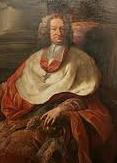

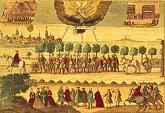







1731 On Mar. 16 the Treaty of Vienna of 1731 is signed by England (Philip Stanhope, Earl of Chesterfield), Holland, Spain, and the HRE (Count Finzendorf); Russia, Prussia, and the HRE agree to oppose Stanislas I in Poland; the Ostend East India Co. is dissolved. On Oct. 31 (214th anniv. of Martin Luther's nailing of the 95 Theses to the Wittenberg church door in 1517) the 20K Lutherans in Salzburg, Austria are expelled en masse by Roman Catholic prince-archbishop (since 1727) Leopold Anton Eleutherius von Firmian (1679-1744); they eventually migrate to North Am. via London, and in 1734 found Ebenezer, Ga. Duke Antonio of Parma and Piacenza dies, ending the Farnese male line; Charles III (Don Carlos of Bourbon) (1716-88), 2nd son of Philip V of Spain becomes duke of Parma and Piacenza> (until 1734). Benjamin Franklin joins the Freemasons and founds the Library Co. of Philadelphia, a subscription library. Ravi Varma dies, and Rama Varma (-1746) becomes ruler of Cochin (until 1746), allying with the Dutch against Travancore. The French fortify Crown Point on the W shore of Lake Champlain. Trying to get that view of that booty? French Canadian explorer Pierre Gaultier de Varennes, Sieur de La Verendrye (Vérendrye) (1685-1749) and his four sons incl. Francois de La Verendrye (Vérendrye) (1715-94) and Louis-Joseph Gaultier de La Verendrye (Vérendrye) (1717-61) begin exploring French territory W of the Missouri River (until 1742), going on to discover the Dakotas, W Minn., part of Montana, Manitoba, and Western Canada, becoming the first white Euros to reach N.D. and the upper Missouri River; in 1739 Francois and Louis-Joseph discover the Saskatchewan River, and explore the Great Plains as far as Wyo. and in 1742-3 become the first white Euros to see the Rocky Mts. N of N.M.; the 253-acre Verendrye Nat. Monument in W N.D. is protected by the U.S. in 1917-56. Alexandria, Va. on the Potomac River, 7 mi. S of Washington, D.C. is founded by Scottish merchants, with George Washington helping to survey the town in 1749, when it receives its present name and is incorporated. English factory workers are prohibited from emigrating to British Am. After talking around the recent failure of his Ostend East India Co., the Swedish East India Co., based in Gothenburg (Goteborg) is founded by Scottish merchant Colin Campbell (1686-1757), along with Swedish merchants Henrik Konig (1642-1720), Niclas Sahlgren (1701-75) et al. (until 1813), obtaining more help from English merchants shut out of the British East India Co.; in order to become a dir., Campbell is naturalized as a Swede and raised to the nobility, and is appointed as Sweden's first envoy to China, although he never meets the emperor; the first voyage embarks next Mar. 7 and arrives in Canton on Sept. 19, staying 120 days and making a nice profit, getting stopped by the Dutch on the return voyage but getting released by the gov. of Batavia and returning to Sweden on Sept. 7, 1733, declaring a 75% dividend, then going on to make 20 more voyages over the next 15 years; too bad, the Swedish steel, timber and textile interests don't want to trade for tea and porcelain, or they would have made more; the Diary of Colin Campbell is pub. in 1996. After 500+ Schwenkfelders flee Silesia to Germany, 208 of them arrive in Penn. by 1737, settling down as farmers near Philly, reaching 3K by modern times - do they want to be your stage driver? Regulations and Instructions Relating to His Majesty's Service at Sea is pub. in Britain as the fundamental regs governing the org. and discipline of the British Navy, providing for each sailor to get 1 gal. of weak beer a day. Glass is made of sand, or the other way around? Rev. Samuel Madden (1686-1765) and Thomas Prior (1681-1751) found the Royal Dublin Society. Justus van Effen (1684-1735) founds Hollandsche Spectator to imitate English reviews. The only surviving Anglo-Saxon copy of Beowolf, which narrowly escaped destruction in 1536, again narrowly escapes the flames which destroy the collection of Sir Robert Cotton. Johann Adolph Hasse becomes Kapellmeister at the Dresden Opera, and his wife Faustina Bordoni becomes prima donna. Jonathan Edwards (1703-58) delivers his Harvard Lectures, showing Puritans how to loosen up enough to become Americans? Architecture: Onderdonk Farmhouse in Queens, N.Y. is built, surviving to modern times. The State House in Philadelphia (later the Independence Hall), designed by Andrew Hamilton is begun (finished 1751). The episcopal Palais de Rohan in Strasbourg is begun (finished 1741). Science: English astronomer John Bevis (1695-1771) rediscovers the Crab Nebula (M1), which was seen by Chinese astronomers in 1054. French entomologist Rene (René) Antoine Ferchault de Reaumur (Réaumur) (1683-1757) invents an alcohol thermometer with the 0-80 (freezing-boiling) Reaumur (Réaumur) Temperature Scale - he should have used the 20-80 rule and made it 0-100? Nonfiction: Dr. John Arbuthnot (1667-1735), An Essay Concerning the Nature of Ailments; recommends dieting. Thomas Bayes (1701-61), Divine Benevolence, or an Attempt to Prove That the Principal End of the Divine Providence and Government is the Happiness of His Creatures. Henri de Boulainvilliers (1658-1722), Histoire des Arabes avec la Vie de Mahomet (posth.); portrays Muhammad as a wise rational lawgiver who was a forerunner of the Age of Reason. Ralph Cudworth (1617-88), Treatise Concerning Eternal and Immutable Morality (posth.). Philip Miller (1691-1771), The Gardener's Dictionary Containing the Methods of Cultivating and Improving the Kitchen Fruit and Flower Garden. Alexander Pope (1688-1744), Moral Essays (1731-5); incl. An Epistle to Burlington on architecture, which gains him more enemies after they accuse him of attacking the Duke of Chandos and his Cannons Estate. Georg Ernst Stahl (1659-1734), Experimenta, Observationes, Aniniadversiones... Chymicae et Physicae. Jethro Tull (1674-1741), Horse-hoeing Husbandry; shows how to reduce seed requirements by 75% using his seed drill, and grow perpetual wheat crops without manure, along with a system of 13 continuous crops; used by Voltaire and George Washington; "I was so far from being inclined to the scribbling disease, that I had disused writing for above twenty years, before I was prevailed on to commit my thoughts upon Husbandry to paper... It is no wonder that the style is low as the author... but fine language will not fill a farmer's barn; neither does truth need any embellishments of art." Voltaire (1694-1778), History of Charles XII. Christian Wolff (1679-1754), Cosmologia Generalis. Music: J.S. Bach (1685-1750), Orchestral Suite No. 3 in D major, BWV 1068 AKA "Air". G.F. Handel (1685-1759), Poro, King of India (HWV 28) (opera) (King's Theatre, London) (Feb. 2); libretto adapted from Metastasio's "Alessandro nell'Indie", about Alexander the Great's clash with King Porus of India in 326 B.C.E., starring Senesino as Poro, Anna Maria Strada as his lover Cleofide, and Annibale Pio Fabri Balino as Alexander. Giovanni Battista Pergolesi (1710-36), La Conversione e Morte di San Guglielmo (first opera) (Naples). Art: William Hogarth (1697-1764), A Harlot's Progress (series of six paintings, now lost); satire of John Bunyan's "Pilgrim's Progress"; M. (Molly) Hackabout arrives in London from the country and becomes a ho in Drury Lane, ending up arrested, worked half to death in Bridewell Prison, and dying fom VD at age 23; turns them into engravings in 1732. Nicolas Lancret (1690-1743), The Dancer Camargo. Plays: Ludvig Holberg (1684-1754), Erasmus Montanus (comedy). George Lillo (1693-1739), The London Merchant; or, The History of George Barnwell (melodrama); an apprentice repents of his vices to win the hand of a worthy girl; known for its infamous gallows scene, showing how the propertied classes keep the rabble down; creates the new genre of domestic (bourgeois) tragedy, dumping heroes from classical and Biblical history for everyday people; too bad, it's too avant-garde for the times? Novels: Pierre de Marivaux (1688-1763), La Vie de Marianne (11 vols.) (1731-45); unfinished; Abbe Prevost (1697-1763), Le Philosophe Anglais, ou Histoire de Monsieur Cleveland, fils naturel de Cromwell, écrite par lui-même, et traduite de l'anglais (8 vols.) (1731-9) (Paris); English trans. pub. in 1734; Histoire du Chevalier des Grieux et de Manon Lescaut (Paris); vol. #7 of "Memoires et Aventures d'un Homme de Qualite"; fickle luxury-loving French babe Manon attracts brilliant student Chevalier des Grieux, and rieunx, er, ruins his career; after she is transported to America, he follows her, fights a duel with the La. gov.'s son, is imprisoned, and escapes to the desert, where she dies in his arms; turned into an opera in 1884 by Jules Massenet, and again in 1893 by Giacomo Puccini. Johann Gottfried Schabel (1692-1758), Die Insel Felsenburg; pub. under alias Gisander; coins the word "robinsonade" for imitations of Daniel Defoe's 1719 "Robinson Crusoe". Births: German Goethe's mother ("Frau Rat") Katharina Elisabeth Goethe (nee Textor) (d. 1808) on Feb. 19 in Frankfurt am Main; daughter of Johann Wolfgang Textor (1693-1771) and Anna Margaretha Lindheimer (1771-83); wife (1748-) of Johann Caspar Goethe (1710-82); mother of Johann Wolfgang von Goethe (1749-1832). Chilean "The Coming of the Messiah in Majesty and Glory" Jesuit priest Manuel De Lacunza (d. 1801) (AKA Juan Josafat Ben-Ezra) on July 19 in Santiago. English poet-satirist Charles Churchill (d. 1764) in Feb. in Vine St., Westminster; educated at Westminster School, and Trinity College, Cambridge U. Am. Rev. War leader-jurist (DOI signer) ("the Objection Maker") Robert Treat Paine (d. 1814) on Mar. 11 in Boston, Mass.; educated at Harvard U.; not to be confused with Thomas Paine (1737-1809). Spanish "Las Tertulias de Madrid" Neoclassical dramatist Ramon de la Cruz (d. 1794) on Mar. 28. Am. Rev. leader (DOI signer) William Williams (d. 1811) on Apr. 23 in Lebanon, Conn.; educated at Harvard U. U.S. First Lady #1 (1789-97) (Baptist) Martha Dandridge "Patsy" Custis Washington (d. 1802) on June 2 (June 13 Old Style) in Chestnut Grove Plantation, Va.; eldest daughter of John Dandridge (1700-56) and Frances Jones (1710-85); wife (1750-7) of Daniel Parke Custis (1711-57) and (1759-) George Washington (1732-99); mother of John Parke Custis (1754-81), father of Nelly Custis (1779-1852). U.S. pres. #1 (under the Articles of Confederation) (DOI signer) Samuel Huntington (d. 1796) on July 16 (July 5 Old Style) in Windham (modern-day Scotland), Conn.; self-educated; uncle and adopted father of Samuel H. Huntington (1765-1817). English "Jennings Dog" antiquarian Henry Constantine "Dog" Jennings (d. 1819) in Aug. in Shiplake, Oxfordshire; educated at Westminster School. English chemist-physicist Henry Cavendish (d. 1810) on Oct. 10 in Nice, France; educated at St. Peter's College, Cambridge U.; never addresses strangers directly; builds a staircase in the back of his house to avoid women; drops out of school to avoid having to talk in public to get a degree; uses a torsion balance to measure the force of gravity; discovers that "water consists of dephlogisticated air [oxygen] united with phlogiston [hydrogen]", and determines the Earth's density (5.45). Am. black astronomer-mathematician Benjamin Banneker (d. 1806) on Nov. 9 near Baltimore, Md. English "John Gilpin's Ride" Romantic poet and hymnodist William Cowper (d. 1800) (pr. like Cooper) on Nov. 15 in Great Berkhampstead, Hertfordshire; educated at Westminster School; a shy, sensitive on-again off-again type who develops suicidal mania in 1763, spends two years in an asylum, moves in with Morley and Mary Unwin at Huntington, then becomes engaged to her in 1775 five years after his death, coming down with religious melancholia in 1773 and taking up poetry while she cares for him? Am. Rev. War maj. gen. William Moultrie (d. 1805) on Nov. 23 in Charleston, S.C.; builder of Ft. Moultrie on Sullivan's Island in Charleston. French Orientalist Abraham Hyacinthe Anquetil-Duperron (d. 1805) on Dec. 7 in Paris; brother of Louis Pierre Anquetil (1723-1808). Italian Jesuit lit. critic-historian (first historian of Italian lit.) Girolamo Tiraboschi (d. 1794) on Dec. 18 in Bergamo. British maj. gen. William Phillips (d. 1781). Am. seaman-merchant, politician and Am. Rev. War maj. gen. Alexander McDougall (b. 1786) in Islay Island, Scotland; emigrates in 1738 - erin go bragh? British rear adm. Charles Inglis (d. 1791); 4th son of Sir John Inglis and Anne, daughter of Adam Cockburn, lord Ormiston (1656-1735). English historian Catharine Macaulay (Graham) (nee Sawbridge) (d. 1791) in Kent. Am. Father of U.S. Special Forces (Rangers) Maj. Robert Rogers (d. 1795) in Methuen, Mass. English physician-scientist-poet Erasmus Darwin (d. 1802) in Elton, Nottinghamshire; grandfather of Charles Darwin (1809-82) and Francis Galton (1822-1911); educated at Cambridge U., and Edinburgh U. British Capt. Sir Richard Pearson (d. 1806). Dutch "Playing Putti on Clouds" Rococo painter Dirk van der Aa (d. 1809) in The Hague; student of Johann Heinrich Keller and Gerrit Mes. Am. famous bastard William Franklin (d. 1813); illegitimate son of Benjamin Franklin (1706-90) with another woman than his wife Deborah Read (1708-74), who adopts him anyway. Deaths: Dutch anatomist Fredrik Ruysch (b. 1638) on Feb. 22 in Amsterdam. Italian pianoforte inventor Bartolommeo Cristofori (b. 1655) on Jan. 27. English "Robinson Crusoe" writer Daniel Defoe (b. 1659) on Apr. 24. English feminist writer Mary Astell (b. 1666) on May 11 in London (breast cancer). French affinity table chemist Etienne Geoffroy (b. 1672) on Jan. 6 in Paris. English statesman Charles Boyle, 4th earl of Orrery (b. 1674) on Aug. 28 in Westminster; buried in Westminster Abbey. French diplomat-poet Jean-Francois Leriget de La Faye (b. 1674) on July 11 in Paris. English mathematician Brook Taylor (b. 1685) on Dec. 29.











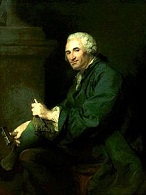
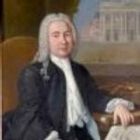
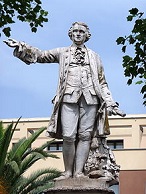
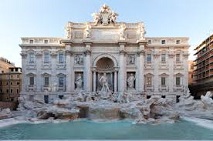
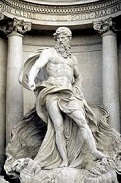
1732 A worldwide influenza starts this year (ends 1733). The black slave pop. of rice-growing S.C. numbers 32K; the white pop. is 14K. In Feb. the first Mass is celebrated in St. Joseph's of Philadelphia, the only Roman Catholic church in British Colonial Am. On Apr. 2 warriors from Dahomey attack a Dutch West Indies Co. trading station in the port of Jakin, and capture three employees, causing the Dutch to send negotiators led by Jacob Elet next year to king Dossou Agadja to negotiate their release. In June George II grants a royal charter to 21 trustees to establish a colony in America between the Savannah and Altamaha Rivers. In Sept. the city of Wilmington, N.C. on the Cape Fear River (modern-day pop. 117K/282K) is founded on land owned by John Watson by royal gov. George Burrington, who calls it New Carthage, then New Liverpool, then New Town (Newton); on Feb. 20, 1739 it is incorporated under the name Wilmington in honor of Spencer Compton, Earl of Wilmington; in the 20th cent it develops the 1-mi.-long Riverwalk; in 2003 it is designated by Congress as a Coast Guard City. On Dec. 19 Benjamin Franklin (b. 1709) begins pub. Poor Richard's Almanack (until 1758) under the alias Richard Saunders (Bonhomme Richard), becoming a bestseller (10K copies/year), making him rich enough to retire in 1748 at age 42; known for the soundbyte: "Early to bed and early to rise makes a man healthy, wealthy and wise" - read your almanack and make money from your niggars, that's the life? Persian shah (since 1722) Tahmasp II is deposed by Nadir Shah, and his 8-mo.-old son Abbas III (1732-40) becomes shah of Persia (until 1736), with Nadir Shah as viceroy and the real power. HRE Charles VI gets the Pragmatic Sanction recognized. Frederick William I of Prussia settles 12K Salzburg Protestants in East Prussia. The Hat Act bans the export of beaver felt hats from the Am. colonies, forcing Americans to buy British-made clothes at 4x the customary price - never refuse an American selling beaver? British drag queen Princess Seraphina (John Cooper) prosecutes Tom Gordon for stealing his clothes. German-Am. Seventh-Day Adventists under German-born Johann Conrad Beissel (1691-1768) found Ephrata Cloister in modern-day Lancaster County, Penn.; on July 27, 2008 Marie Kachel Bucher, its last surviving resident dies. Vitus Bering leads the massive Russian govt.-backed Great Northern Expedition to map the Arctic coast of Siberia and some parts of the North Am. coastline (ends 1743); Russian naval officer Ivan Fyodorov (Fedorov) (-1733) and Russian geodesist Mikhail Spiridonovich Gvozdev (1700-59) discover Alaska near Cape Prince of Wales, westernmost point of North Am., completing the discovery of the Bering Strait, then chart the NW coast of Alaska. French explorer Francois-Marie Bissot, Sieur de Vincennes (1700-36) founds Ft. Vincennes, becoming the first white settlement in Indiana. Ga. colony begins sericulture, producing 10K lbs. of silk per year by 1759; Conn. follows suit in 1734, becoming far more successful. The first public stagecoach line in British Am. links Burlington and Perth Amboy, N.J., which connect by water to Philly and New York City, respectively. The town of Selma, Ala. (meaning: "high seat or throne", from the poem "The Songs of Selma" by Ossian) (modern-day. pop. 21K) on the Alabama River is first explored by French explorers, who call it Ecor (Écor) Bienville; in 1815 Anglos settle it, calling it Moore's Bluff; it is incorporated in 1820 after being planned and named by future U.S. vice-pres. William R. King; during the U.S. Civil War it becomes the 2nd most important military manufacturing center after Tredegar Iron Works in Richmond, Va. A London theatrical co. performs for the first time in New York City on Pearl St. German-born Johann Conrad Beissel (1691-1768) founds the vegetarian mainly celibate Seventh Day Baptists (Ephrata Community) in Germantown, Penn. The Moravian Brethren start missionary work, sending their first missionaries to the slaves in the West Indies, going on to establish missions in North Am., South Am., South Africa, Greenland, and Lapland. Naples-born Italian prelate (St.) Alfonso (Alphonsus) Maria de Liguori (1691-1787) founds the Liguorian (Redemptorist) Order; in 1762 he becomes bishop of Sant' Agata dei Goti in the kingdom of Naples, where he goes on to write great Catholic crowd-pleasers. The Jews' Free School in Ebenezer Square, London is founded on Apr. 13; in 1822 it moves to Bell Lane in East End, London, going on to become the largest all-Jewish school in Europe, graduating Israel Zangwill et al. The annual Copley Medal is founded via a £100 bequest by Sir Godfrey Copley, 2nd Baronet (1653-1709) to recognize "outstanding achievements in research in any branch of science", becoming the oldest medal awarded by the British Royal Society, and the oldest scientific award to survive to modern times; the first one is given to Stephen Gray for "his new Electrical Experiments". William Berriman gives the last Boyle Lecture. French engraver Huert-Francois Gravelot (Bourguignon) (1699-1773) emigrates to London, bringing the Rococo style to England and reinvigorating illustrative engraving before hiking back to France in Oct. 1745 after the Battle of Fontenoy; his students incl. Thomas Gainsborough. The South Carolina Gazette begins pub. Philadelphische Zeitung, the first German-language newspaper in America begins pub.; German-language publishing also begins flourishing in Ephrata, Penn. Sports: Architecture: The Royal Opera House in Covent Gardens in London on Bow St. opens, becoming Handel's place in 1735. St. Nikolas Church in Prague (begun 1711) is finished. After a competition is organized by Pope Clement XII, the design of Nancy-born French Baroque-Rococo sculptor Lambert-Sigisbert Adam the Elder (l'Aine) (1700-59), for the Baroque Trevi Fountain in Rome (completed in 172) is unanimously accepted by the committee, which then turns around and selects Florentine architect Alessandro Maria Gaetano Galilei (1691-1737), then after an outcry against Florentines switches to genuine Romans Nicola (Niccolo) Salvi (1697-1751) and his apprentice Luigi Vanvitelli (Lodewijk van Wittel) (1700-73), pissing-off Adam and causing him to return from Rome in 1733; it is finished in 1762 by sculptor Pietro Bracci (1700-73), who sculpts the colossal statue of Oceanus (Neptune) from a plaster model by Cassano Magnago, Lombardy-born sculptor Giovanni Battista Maini (1690-1752). Inventions: Michael Menzies invents a threshing machine consisting of fails driven by a water wheel. English clockmaker Christopher Pinchbeck (1670-1732) invents the copper-zinc alloy Pinchbeck, which becomes popular for imitation gold watches for the next 20 years until 9-carat gold and electrogilding replace it. Science: Saint-Malo-born Pierre Louis Moreau de Maupertuis (1698-1759), who left the army in 1723 at age 25 after five years of spare-time study of math to become a member of the Academie Francaise in Paris introduces Newton's Theory of Gravitation to France, sparking a French nerd movement. Nonfiction: George Berkeley (1685-1753), The Minute Philosopher. Dom Augustine Calmet (1672-1757), An Historical, Critical, Geographical, Chronological, and Etymological Dictionary of the Bible. Elihu Coleman (1699-1789), A Testimony Against the Antichristian Practice of Making Slaves of Men; Quaker minister preaches for abolition, quoting the Bible selectively. Bernard de Mandeville (1670-1733), An Enquiry into an Origin of Honour; and the Usefulness of Christianity in War. Johann Jacob Moser (1701-85), Foundations of International Law. Daniel Neal (1678-1743), The History of the Puritans (5 vols.). Johann Heinrich Zedler (1706-60), Grosses, Vollstandiges Universal-Lexikon (64 vols.) (1732-50). Johann Gottfried Walther (1684-1748), Musik-Lexikon; first of its kind. Jakob Benignus Winslow (1669-1760), Exposition Anatomique de la Structure du Corps Human (Anatomical Structure of the Human Body). Christian Wolff (1679-1754), Psychologia Empirica; popularizes the term "psychology". Music: J.S. Bach (1685-1750), Schweigt stille, plaudert nicht, BWV 211 (Be still, stop chattering) AKA the Coffee Cantata (1732-5); tells an amusing tale of addiction to coffee, debuting it at the coffee house in Leipzig; "If I couldn't, three times a day, be allowed to drink my little cup of coffee, in my anguish I will turn into a shriveled-up roast goat". Lodovico Giustini (1685-1743), Sonate da Cimbalo di Piano e Forte, Op. 1; first compositions for the modern piano? Giovanni Battista Pergolesi (1710-36), Lo Frate Innammorato (The Brother in Love) (opera) (Naples). G.F. Handel (1685-1759), Ezio (HWV 29) (opera) (King's Theatre, London) (Jan. 15); libretto by Pietro Metastasio, based on Jean Racine's "Britannicus"; stars Senesino as Roman gen. Ezio, and Anna Maria Strada as his babe Fulvia; a flop, folding after five performances, becoming his greatest operatic failure; Sosarme, Re di Media (HWV 30) (Sosarmes, King of Media) (opera) (London); stars Senesino as Sosarme. Giovanni Battisti Sammartini (1700-75), Memet (opera). Art: Francois Boucher (1703-70), The Rape of Europa (1732-4); illustrations for an ed. of Moliere; Mercury Confiding the Infant Bacchus to the Nymphs (1734-4). Jean-Baptiste-Simeon Chardin (1699-1779), Kitchen Table with Shoulder of Mutton. William Hogarth (1697-1764), A Rake's Progress (series) (1732-3); sequel to "A Harlot's Progress"; satire of English manners and customs; Tom Rakewell, spendthrift son of a rich merchant goes to London, wastes his money in dissolute living, and ends up in Fleet Prison and Bethlem Hospital; turns them into engravings in 1734, which are a hit. Plays: Henry Carey (1687-1743), Betty; or The Country Bumpkins. Johann Christoph Gottsched (1700-66), Der Sterbende Cato; adapted from Joseph Addison. Philippe Nericault Destouches (1680-1754), Le Glorieux (comedy). Births: Polish-Lithuanian king (last) (1764-95) Stanislas II Augustus (Stanislaw II August) Poniatowski (d. 1798) on Jan. 17 in Wolczyn, Belarus; son of Count Stanislas Poniatowski (1676-1762) and Princess Kostancja Czartoryska (1700-59). Am. statesman (DOI signer) Richard Henry Lee (d. 1794) on Jan. 20 in Stratford, Westmoreland County, Va.; son of Thomas Lee (1690-1750) and Hannah Harrison Ludwell (1701-50); great-uncle of Robert E. Lee (1807-70); brother of Thomas Ludwell Lee Sr. (1730-78), Francis Lightfoot Lee (1734-97), William Lee (1739-95), and Arthur Lee (1740-92). French dramatist and diplomat Pierre-Augustin Caron de Beaumarchais (d. 1799) on Jan. 24 in Paris; inventor of the escapement for wristwatches; institutes the practicing of paying playwrights royalties for performances. Am. Rev. War gen. Charles Lee (d. 1782) on Feb. 6 in Cheshire, England; noted for eccentricity, criticizing Washington, and getting court-martialed - the Lees all tend to have that problem? English dramatist-novelist Richard Cumberland (d. 1811) on Feb. 19 in the Master's Lodge, Trinity College, Cambridge U.; not to be confused with philosopher Richard Cumberland (1631-1718); basis of Sir Fretful Plagiary in Richard Sheridan's "The Critic" (1779). U.S. no-party pres. #1 (1789-97) ("Father of his Country") (Freemason) (devout Anglican, probably not a Deist?) 6'2" (6'1-1/2"?) George Washington (d. 1799) on Feb. 22 (Feb. 11, 1731/2 Old Style) in Pope's Creek Estate near modern-day Colonial Bech, Westmoreland County, Va. Colony (S of Mt. Vernon) on Pope's Creek (tributary of the Potomac); son of Augustine Washington (1694-1743) and 2nd wife Mary Ball Washington (1708-89); named after Mary's guardian George Eskridge; cold distant father never bonds with him; selfish possessive mother is a control freak, trying to turn him into her 2nd husband, and he later distances himself from her through life, refusing to attend her funeral; as a boy attends St. George's Anglican Church; no U.S. pres. is born earlier; at age 11 his father dies, and he inherits 10K acres of land and 50 slaves, his basic education in the 3 R's ending while his two half-brothers Lawrence and Augustine attend college, scarring him for life; loses his teeth by cracking walnuts with them? British Whig politician Thomas "Tommy" Townshend, 1st Viscount Sydney (d. 1800) on Feb. 24 in Sidcup, Kent; educated at Clare College, Cambridge U.; namesake of Sydney, Australia. Am. Rev. War brig. gen. Francis "Swamp Fox" Marion (d. 1795) on Feb. 26 in Georgetown, S.C.; of French Huguenot ancestry; born premature "not larger than a New England lobster" (Peter Horry). U.S. Supreme Court justice (1789-1810) William Cushing (d. 1810) on Mar. 1 in Scituate, Mass.; educated at Harvard U.; last U.S. judge to wear a full wig. English "Critical Pronouncing Dictionary" actor-lexicographer John Walker (d. 1807) on Mar. 18 in Colney Hatch, Middlesex. Italian composer Gian Francesco de Majo (d. 1770) on Mar. 24 in Naples; son of Giuseppe de Majo (1697-1771). Austrian composer ("Father of the Symphony") ("Father of the String Quartet") (Freemason) Franz Joseph "Papa" Haydn (d. 1809) on Mar. 31 in Rohrau (25 mi. ESE of Vienna); takes the quartet from a double duet to a full 4-part harmony; is called "Papa" even though he has no kids; his wife uses his music sheets to line pastry pans; 24 years older than his friend Wolfgang Amadeus Mozart, he outlives him by almost 20 years. French "The Swing" Rococo erotic painter Jean-Honore (Jean-Honoré) Fragonard (d. 1806) on Apr. 5 in Grasse; pupil of Jean Baptiste Chardin, Francois Boucher, and Carle Van Loo; paints jauntily-posed French aristocrats until he is put out of biz by the French Rev. Am. astronomer-mathematician David Rittenhouse (d. 1796) on Apr. 8 in Paper Mill Run (near Germantown), Penn.; first dir. of the U.S. Mint (1792-5). English PM (1770-82) ("the minister who lost America") Frederick North, 2nd Earl of Guilford (d. 1792) on Apr. 13 in Wroxton Abbey; educated at Eton College, and Trinity College, Oxford U.; his strong resemblance to George III causes rumors that the king's daddy Frederick, prince of Wales is his real daddy - no sense of direction? U.S. Supreme Court justice John Blair Jr. (d. 1800) on Apr. 17 in Williamsburg, Va.; educated at the College of William and Mary. English "The Jealous Wife" dramatist-essayist and theater mgr. George Colman the Elder (the First) (d. 1794) in Apr. in Florence, Italy; educated at Westminster School, and Christ Church, Oxford U.; father of George Colman the Younger (1762-1836). British gov. of Bental (1759-64) Henry Vansittart (d. 1770) n June 3 in Bloomsbury, Middlexec; family name comes from Sittart in Limburg, Netherlands; educated at Reading School, and Winchester College. German composer ("the Buckeburg Bach") Johann Christoph Friedrich Bach (d. 1795) on June 21 in Leipzig; 9th and youngest son of Johann Sebastian Bach (1685-1750); spends almost 20 years in London, becoming known as the "English Bach". French astronomer Joseph Jerome Lefrancais de Lalande (d. 1807) on July 11 in Bourg-en-Bresse. French statesman-financier-economist (financer minister of Louis XVI) Jacques Necker (d. 1804) on Sept. 30 in Geneva, Switzerland; husband of Suzanne Curchod (1737-94); father of Madame de Stael (1766-1817). English astronomer royal #5 (1765-1811) Rev. Nevil Maskelyne (d. 1811) on Oct. 6 in London; educated at Westminster School, and St. Catherine's College, Cambridge U.; brother of Margaret Maskelyne (1735-1817), wife of Robert Clive; father of Margaret Maskelyne (1786-1858), mother of Oxford mineralogy prof. Mervyn Nevil Story-Maskelyne (1823-1911). English piano maker John Broadwood (d. 1812) on Oct. 6 in Oldhamstocks. Austrian horn player Joseph Leutgeb (Leitgeb) (d. 1811) on Oct. 6 in Neulerchenfeld; Mozart's favorite horn player. Am. journalist and "Boston Gazette" ed. Benjamin C. Edes (d. 1803) on Oct. 14 in Charlestown, Mass. Am. lapsed Quaker patriot ("Penman of the Revolution") John Dickinson (d. 1808) on Nov. 2 in Talbot County (near Trappe), Md.; great-grandfather Walter Dickinson emigrated from England in 1754, and set up Croisadore ("golden cross") tobacco plantation. Am. Rev. War leader, gov. #1 of Md. (1777-9) and U.S. Supreme Court justice #7 (1791-3) Thomas Johnson Jr. (d. 1819) on Nov. 4 in St. Leonard, Calvert County, Md. French writer and salon hostess Julie Jean Eleanore de Lespinasse (d. 1776) on Nov. 9 in Lyon; illegitimate daughter of Madame L'Albon; shacks up with science Jean le Rond d'Alembert (1717-83). English gov.-gen. #1 of India (1773-85) Warren Hastings (d. 1818) on Dec. 6 in Churchill, Oxfordshire; educated at Westminster School. Prussian Brandenburg Gate architect Carl (Karl) Gotthard Langhans (d. 1808) on Dec. 15 in Landeshut, Silesia (modern-day Kamienna Gora, Poland); educated at the U. of Halle. Francis "Franky" Folger Franklin (d. 1736); son of Benjamin Franklin and Deborah Franklin. Dutch physicist Anton Brugmans (d. 1789). French publisher Pierre Francois Didot (d. 1793); son of Francois Didot (1689-1757); brother of Francois Ambroise Didot (1730-1804); father of Henri Didot (1765-1852). Swedish physicist Johan Wilcke (d. 1796). Deaths: German sculptor Balthasar Permoser (b. 1651) on Feb. 18 in Dresden. Dutch mapmaker (in England) Herman Moll (b. 1654); leaves the immortal soundbytes "California is an island", and "I have had in my office mariners who have sailed around it." Japanese emperor #112 (1663-87) Reigen (b. 1654) on Sept. 24. English divine Francis Atterbury (b. 1663) on Feb. 22 in Paris, France. Virginia planter Robert "King" Carter (b. 1663). English-born Am. poet Ebenezer Cooke (b. 1665). Sardinian king (1720-30) Victor Amadeus II (b. 1666) on Oct. 31. English horticulturist John Laurence (b. 1668). Scottish divine Thomas Boston (b. 1676) on May 20. Hungarian-Transylvanian prince Francis II Rakoczy (b. 1676) on Apr. 8 in Rodosto (Tekirdag), E Thrace; dies in exile. Dutch mapmaker Herman Moll (b. 1678). English "T'was when the Seas Were Roaring", "William's Farewell to Black-Ey'd Susan" poet-dramatist John Gay (b. 1685) on Dec. 4; buried in Westminster Abbey. English botanist Richard Bradley (b. 1688) on Nov. 5 in Cambridge.

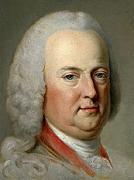


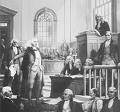

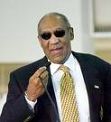

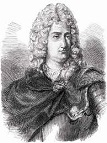




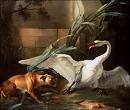

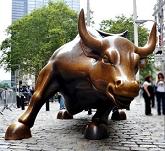
1733 On Feb. 1 Augustus II the Strong (b. 1670) dies, and his son Augustus III the Corpulent (1696-1763), who converted to Roman Catholicism in 1712 despite the displeasure of the Protestant Saxon aristocracy is elected elector of Saxony (until 1763), followed next year by king of Poland and grand duke of Lithuania (until 1763); too bad, only a minority of Polish magnates support him, the majority electing leaner Stanislas I Leszczynsky instead, and on Aug. 14 the War of the Polish Succession, the first of three wars in the Second Thirty Years' War (ends 1738) begins when Stanislas I seeks to reascend the throne, and tsarina Anna of Russia intervenes (until 1735); on Nov. 7 the Treaty of the Escorial (First Pacte de Famille) is signed by Philip V of Spain (grandson of Louis XIV), joining up on Stanislas I's side, after which Louis XV of France and Sardinia also sign up, while Austria, Russia, Prussia, and Saxony side with Augustus III; PM Robert Walpole keeps Britain neutral despite the king screaming about his Hanoverian interests; meanwhile Heinrich von Bruhl (Brühl) (1700-63), who gained the confidence of Augustus II and used his papers and jewels to raise money to secure his election becomes the #1 confidant of Augustus III, going on to throw off the power of the old servants of the electoral house by 1739 and become the de facto head of the Saxon court, becoming PM in 1746 and using his position to gain great wealth and numerous titles, with 200 domestic servants incl. guards paid better than the king's, while bankrupting the state and shrinking the army to satisfy the demands of the effete king, to whom he controls access; "Bruhl had more garments, watches, laces, boots, shoes and slippers, than any man of the age. Caesar would have counted him among those curled and perfumed heads which he did not fear." On Feb. 2 after being granted a royal charter for the area between the Savannah and Altamaha Rivers last June 9, Godalming, Surrey-born Oxford-educated Methodist Ga. gov. #1 (1732-43) James Edward Oglethorpe (1696-1785) along with some Moravian Protestants land in Savannah, and found the colony of Jaw-Jaw, er, Georgia (Ga.) (named after George II of England) as a refuge for debtors and criminals after getting the idea from English Anglican clergyman Thomas Bray (1656-1730); he leads 120 colonists to the colony, then with surveyor col. William C. Bull lays out the capital city of Savannah (modern-day pop. 136K/384K) on the coast in a geometrical pattern with 22 squares, starting with Johnson Square on Bull St. between Bryan and Congress Sts.; the colony tries to be both a military buffer against Spanish Fla. and a philanthropic experiment for the poor and persecuted. On Mar. 14 PM Robert Walpole introduces an excise bill, triggering demonstrations, incl. a procession of merchants on sheriffs on Apr. 11 bearing a petition against new taxes. On July 15 the Spanish Treasure Fleet wrecks on the Florida Keys - would you get that animal off my wife, thank you? In July 42 Jewish settlers arrive in Savannah, Ga., after which the trustees of Ga. vote to ban Jewish immigrants, and James Oglethorpe talks them into letting this batch stay, incl. the Salvador Family. In Dec. Palatine immigrant John Peter Zenger (1697-1746) founds the anti-govt. New York Weekly Journal as a rival to William Bradford's pro-govt. New York Gazette, soon editorializing against newly-appointed royal colonial N.Y. gov. (1732-6) Bill Cosby, er, Brig.-gen. Sir William Cosby (1690-1736), which gets him into hot water - every time I look around you're either in trouble, about to get in trouble, or laying out a long term plan to get into trouble? Santa Cruz in the West Indies comes under Danish control; the Molasses Act protects English planters in the British West Indies from Dutch and French competition in the French sugar islands by introducing a six pence per gallon tax on molasses; unfortunately, rum distilleries in New England need more molasses than the British sugar islands can produce, and they begin flouting the act. PM Robert Walpole gets the approval of the king and queen for his solidarity principle, whereby cabinet members are forced to keep quiet or resign if they disagree with the prime minister (him); if the PM loses the support of the house majority, he resigns. Conscription is introduced in Prussia - my, that uniform looks smart? Christian VI of Denmark promulgates the Danish Adscription Law, forcing peasants to remain in their home regions so that they can be subscribed as soldiers by the nobles; repealed in 1788. The secret Bourbon Family Compact is made, whereby the ruling houses of France and Spain agree to act together against Britain to advance their colonial and commercial interests. The Latin language is abolished in the English courts. Strong Man Lodge, the first German Freemason lodge is founded in Hamburg (until 1933); St. John's Lodge, the first officially charted Freemason lodge in North Am. is formed in Boston, Mass., with Col. Daniel Coxe (1673-1739) as grandmaster of the colonies, who goes on to spin off provincial grand lodges in N.Y., Philly, and S.C. by 1737. John Bartram (1699-1777) of Philadelphia, "the Father of Am. Botany" begins a correspondence with Europeans that results in the pawpaw, sourwood, and other European plants being introduced to North Am. Margaret Askew (1614-1702) marries English judge and MP (later a Cromwell supporter) Thomas Fell (1598-1658), owner of Swarthmoor Hall in Ulverson, Cumbria, and goes on to fall for George Fox's Quakerism and become its "nursing mother", with the hall becoming its birthplace. Swedish poet Olof von Dalin (b. 1708) founds the Swedish weekly lit. journal Svenska Argus, modeled after The Spectator in England. French painter Jean Baptiste Oudry (1686-1755) is appointed dir. of the Beauvais tapestry factory, where his classical hunting designs become a big hit. Cape Girardeau, Mo. (modern-day pop. 38K/134K) at a rocky promontory overlooking the Mississippi River is founded as a trading post by French soldier Jean Baptiste de Giardot in Kaskaskia in the French colony of La Louisiane; in 1793 after it becomes kaput, French-Canadian trader Louis Lorimier establishes another trading post there; at the same time Baron Carondelet grants land to the Black Bob Band of the Hathawekela Shawnee, who are removed by the U.S. govt. in 1833; in 1799 Am. settlers found the first English school W of the Mississippi River there at Mt. Tabor; the town is incorporated in 1818, after which it becomes the biggest port on the Mississippi River between St. Louis and Memphis. Poor Richard's Almanack for 1733; "The heart of a fool is in his mouth, but the mouth of a wise man is in his heart." Sports: The govt. of New York City authorizes the old Dutch parade ground at the S end of Broadway adjoining Ft. Amsterdam E of Battery Park to be established as a "bowling green... for the recreation and delight of the inhabitants of the city", known as Bowling Green, where ninepins (bowling) is played for the first time in New York City?; it becomes the center of the exclusive residential district and the oldest public park in New York City to survive to modern times; in 1989 it becomes host to the Charging Bull bronze sculpture by Arturo Di Modica (1941-), and is used as the starting point for ticker tape parades into the "Canyon of Heroes" (Broadway). Architecture: The late Baroque-style Asamkirche (Church of St. Johann Nepomuk in Munich, Germany begins construction (finished 1746) by the Asam brothers Cosmas Damian Asam (1686-1739) and Egid Quirin Asam (1692-1750). Bowling Green Park in New York City E of Battery Park is built for a bowling green, becoming the oldest public park in New York City. Gov. Oglethorpe orders the Tybee Lighthouse on the Ga. coast constructed. The 193-ton Czar Kolokol (Emperor Bell) of Moscow is cast. Inventions: British lawyer Chester Moore (Moor) (More) Hall (1703-71) builds the first Achromatic Compound Lens out of flint glass. John Kay (1704-80) of England patents the Flying Shuttle Loom for the manufacture of textiles, which uses a lever and springs to allow one weaver to throw the shuttle back and forth instead of two; too bad, while wool weavers adopt it, cotton weavers don't follow er, suit until the 1760s. Science: French chemist Charles Francois de Cisternay du Fay (1698-1739) pub. his discovery that electrical action can be repulsion as well as attraction, calling the two types "vitreous" and "resinous", noting the difference between conductors ("electrics") and insulators ("non-electrics"); he also disproves the theory of Stephen Gray that electric properties of a body depend on its color. Nonfiction: Vincent La Chapelle (1690-1745), Le Cuisinier Moderne (3 vols.) (England); first cookbook author to call his cooking modern, consisting of an expanded version of Massialot with lavish illustrations; a 4-vol. French ed. follows in 1735. Stephen Hales (1677-1761), Haemostaticks; mechanics of blood flow and blood pressure; traces reflex actions to the spinal cord. Alexander Pope (1688-1744), Essay on Man (1733-4); Pt. 1 is pub. anon. to draw praise from his worst enemies, which works; "Give me again my hollow tree, a crust of bread, and liberty". Voltaire (1694-1778), Lettres sur les Anglais (Letters on England). Music: J.S. Bach (1685-1750), Mass in B Minor (short vers. - full vers. in 1738). John Gay (1685-1732), Achilles (opera) (Covent Garden, London) (posth.). G.F. Handel (1685-1759), Orlando (HWV 31) (opera) (King's Theatre, London) (Jan. 27); libretto adapted from Carlo Sigismondo Capece's "L'Orlando", adapted from Ludovico Ariosto's "Orlando Furioso"; stars Senesino as Senesino; flops after 10 performances. Giovanni Battista Pergolesi (1710-36), La Serva Padrona (The Servant Mistress) (opera buffa) (Aug. 28) (Naples); "oldest opera in the standard repertoire"; incl. La Serpina Penserete, Aspettare e Non Venire. Nicola Porpora (1686-1768), Arianna in Nasso. Jean-Philippe Rameau (1683-1764), Hippolyte et Aricie (first opera) (Academie Royale de Musique, Paris) (Oct. 1); libretto by Abbe Simon-Joseph Pellegrin based on Racine's "Phedre"; causes a sensation with its revolutionary use of harmony, causing it to be attacked by supporters of Jean-Baptiste Lully, who lost, making him into his successor until his music goes out of style by the end of the cent.; he also becomes the leading French harpsichord composer along with Francois Couperin. John Christopher Smith (1712-95), Ulysses (first opera). Plays: Carlo Goldoni (1707-93), Amalasunta (tragedy); burned after its premiere. Antonio Jose da Silva (1705-39), Life of the Great Don Quixote de la Mancha and Sancho Panza (debut). Poetry: Ebenezer Cooke (1667-1732), The Maryland Muse, Containing a Revised Edition of The Sot-Weed Factor and The History of Colonel Nathaniel Bacon's Rebellion in Virginia. Alexander Pope (1688-1744), Imitations of Horace (1733-8); satirizes life under George II, with Joseph Addison as Atticus and Lord Hervey as Sporus. Jonathan Swift (1667-1745), On Poetry; "Hobbes clearly proves that every creature/ Live in a state of war by nature./ So, naturalists observe, a flea/Hath smaller fleas that on him prey;/ And these have smaller still to bit 'em;/ And so proceed ad infinitum./ Thus every poet, in his kind,/ Is bit by him that comes behind"; Verses on the Death of Dr. Swift; "Yet malice never was his aim;/ He lashed the vice but spared the name./ No individual could resent,/ Where thousands equally were meant./ His satire points at no defect/ But what all mortals may correct;/ For he abhorred that senseless tribe/ Who call it humor when they gibe." Novels: Samuel Madden (1686-1765), Memoirs of the Twentieth Century; a guardian angel gives the author a series of letters from English ambassadors in several countries to the British Lord High Treasurer, along with replies from the British foreign office, all from the future (1997-1998), in the time of George VI; the first time travel novel?; suppressed by Sir Robert Walpole. Pierre de Marivaux (1688-1763), La Vie de Marianne (11 vols.) (1731-42). Births: English naval explorer Philip Carteret, Seigneur of Trinity (d. 1796) on Jan. 22 in Jersey. Am. Rev. leader and judge (Episcopalian) James Duane (d. 1797) on Feb. 6 in New York City; mayor #1 of New York City (1784-9). English barrister (lord chancellor in 1793-1801) Alexander Wedderburn, 1st Earl of Rosslyn (d. 1805) on Feb. 3 (Feb. 13 Old Style) in East Lothian; educated at the U. of Edinburgh. Swedish botanist Daniel Charles (Carlsson) Solander (d. 1782) on Feb. 19 in Pitea, Norrland; educated at Uppsala U.; student of Carl Linnaeus; inventor of the Solander Box for storing books. English scientist (chemist) Joseph Priestley (d. 1804) on Mar. 13. German Neoclassical painter Johann Zoffany (Zauffelij) (d. 1810) on Mar. 13 in Frankfurt; painter for court of George III of England. German mathematician-anthropologist Carsten (Karsen) Niebuhr (d. 1815) on Mar. 17 in Ludingworth, Lower Saxony; father of Barthold Georg Niebuhr (1776-1831). German writer Christoph Friedrich Nicolai (d. 1811) on Mar. 18 in Berlin; son of Christoph Gottlieb Nicolai (-1752). English bone china inventor Josiah Spode Sr. (d. 1797) on Mar. 23 in Stoke-on-Trent; father of Josiah Spode Jr. (b. 1754-1827). French Borda Count scientist-sailor Jean-Charles, Chevalier de Borda (d. 1799) on May 4 in Dax, Landes. French Rococo painter Hubert Robert (d. 1808) on May 22. British col. Barry St. Leger (d. 1789) (pr. SILL-in-jur) in May in County Kildare, Ireland; of Huguenot descent; educated at Eton College, Cambridge U. Am. Rev. War gen. James Clinton (d. 1812) on Aug. 9 in Ulster County, N.Y.; brother of George Clinton (1739-1812); father of DeWitt Clinton (1769-1828). French Shakespeare-loving dramatist Jean-Francois Ducis (d. 1816) on Aug. 22 in Versailles. German writer-poet Christoph Martin Wieland (d. 1813) on Sept. 5 in Oberholzheim, Baden-Wurttemberg. Am. Rev. leader (DOI signer) George Read (1798) on Sept. 18 in North East, Md. Irish "The Maid of the Mill" playwright-librettist Isaac Bickerstaffe (Bickerstaff) (d. 1812) on Sept. 26 in Dublin; starts out as a page to Lord Chesterfield, lord lt. of Ireland. Am. Rev. War maj. gen. Philip John Schuyler (d. 1804) on Nov. 20 in Troy, N.Y.; father of Philip Jeremiah Schuyler (1768-1835). Finnish explorer-botanist Herman Diedrich Spoering (Spöring) Jr. (d. 1771) in Turku; son of Herman Spoering Sr. (1701-47). Palestinian rabbi Haim Isaac Carigal (d. 1777) in Hebron; becomes a rabbi at age 17 and spends 20 years traveling the world collecting funds for the Jewish community. English type designer Joseph Jackson (d. 1792); pupil of William Caslon (1692-1766). German embryologist Caspar (Kaspar) Friedrich Wolff (d. 1794); discoverer of the Wolffian body (embryonic kidney). Japanese painter Maruyama Okyo (d. 1795). Am. Rev. War gen. Benjamin Lincoln (d. 1810) in Hingham, Mass. Deaths: French chef Francois Massialot (b. 1660) in Paris. French sculptor Nicolas Coustou (b. 1658) on May 1 in Paris. Italian mathematician Girolamo Saccheri (b. 1667) on Oct. 25 in Pavia; dies after pub. Euclid Freed of Every Flaw (Euclides ab Omni Naevo Vindicatus), in which he reveals his discovery of non-Euclidean (hyperbolic) geometry, but doesn't realize it since he is trying to prove Euclid's parallel postulate true by a reductio ad absurdum proof; 50 years later J.H. Lambert also stumbles over it, and 40 years after that (1823) Bolyai and Lobachevsky finally get the brain man brownie buttons; Saccheri's book also describes the Saccheri (Khayyam-Saccheri) Quadrilateral, which has two equal sides perpendicular to the base. French composer Francois Couperin (b. 1668) on Sept. 11 in Paris; leaves 4 vols. of harpsichord music (1713-30), which became a hit with J.S. Bach, Richard Strauss, and Maurice Ravel, who in 1914-17 composed Le Tombeau de Couperin (Couperin's Memorial). German Saxon elector (1694-1733) and Polish king (1697-1704, 1709-33) Augustus II the Strong (b. 1670) on Feb. 1 in Warsaw. Dutch-born English satirist Bernard de Mandeville (b. 1670) on Jan. 21 in Hackney (influenza). Swiss mathematician Jakob Hermann (b. 1678) on July 11. English actor Barton Booth (b. 1681). French Roman Catholic Ursuline nun Marie de Tranchepain de Saint Augustine (b. ?) on Nov. 11 in New Orleans, La.; leaves Account of the Voyage of the Ursulines to New Orleans in 1727.
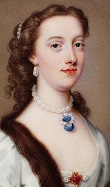
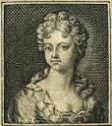
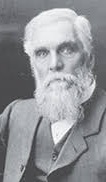

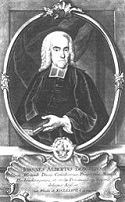




1734 On Feb. 22-June 30 the Siege of Danzig in Poland (first time that French and Russian troops meet as enemies on the field) ends with surrender to the Russians, after which Stanislas I flees to France. On Mar. 25 Prince Willem (William) IV of Orange-Nassau (1711-51) marries princess Anne of Hanover, Duchess of Brunswick and Luneburg (1709-59), 2nd child and eldest daughter George II of England, the 2nd daughter of a British monarch to hold the Frenchie title of princess royal. On May 25 Don Carlos of the Spanish House of Bourbon (2nd son of Philip V) invades Naples and Sicily, and reconquers the Kingdom of the Two Sicilies from Austria at the Battle of Bitonto, getting even for the 1713 Treaty of U-Tricked-Me; Charles III throws Austria a bone by relinquishing Parma and Piacenza, which France and Sardinia have their eye on anyway; Sicily is run by the Spic-and-Span Spanish Bourbons until 1860 (except 1806-16). On June 12 after James FitzJames, 1st duke of Berwick (son of James II of England) receives command of a French army, which occupies the duchy of Lorraine and the Hapsburg Netherlands, then crosses the Rhine River and sieges the fortress of Philipsburg (Philippsburg) (Udenheim) on the Rhine River in Germany, he is KIA by artillery on June 12, hurting their future chances; on July 18 they capture the fortress. On July 11 Margaret Bentinck, Duchess of Portland (1715-85) marries the 2nd duke of Portland at Oxford Chapel in Marylebone, going on to join the Bluestockings and turn her home in Bulstrode Park in Buckinghamshire into a natural history museum, hiring a team of naturalists and collecting the largest natural history collection in England, making fans of Jean-Jacques Rousseau, Horace Walpole et al. pioneering Anglo-Saxon scholar Elizabeth Elstob (1683-1756), who lost her brother and inherited his debts, causing her to have to do nanny work for a living tutors her children in 1738-56. On June 29 after a French-Sardinian army occupies Milan, the Battle of Parma with Austrian-Prussian forces under Prince Eugene of Savoy is a push. Isn't this pointless bloodbath about two centuries early? On Sept. 15 the 10-a.m.-to-5-p.m. Battle of Secchia sees king Charles Emmanuel III of Sardinia escape in his nightgown; on Sept. 19 after he gets dressed, 49K French and Sardinians under Charles Emmanuel III, Francois-Marie, 1st Duc de Broglie (1671-1745), and marshal Francois de Franquetot de Coigny (1670-1759) defeat 40K Austrians and Prussians at the Battle of Guastalla (Luzzara) (waste it all, losers?)), with a total of 12K dead or wounded, incl. German gen. Frederick Louis of Wurttemberg-Winnental (b. 1690), who is KIA. On Nov. 17 New York City newspaper publisher John Peter Zenger is arrested on charges of seditious libel, and is imprisoned for 10 mo. before being brought to trial, during which time his his rival William Bradford flops to his side against the stankin' English govt. - after 35 years I am looking forward to retiring, but losing my health insurance bothers me? Turkey and Persia go to war (ends 1735). England and Russia sign a trade agreement - your caviar for my tobacco? The Hogarth (Engraving) Copyright Act of 1734, sponsored by William Hogarth is passed in England - I will protect my family? After pressure from the Manila business community, the volume of galleon trade through the Philippines is increased; too bad that only China and Mexico are allowed to trade in Manila. 8K Salzburg Protestant refugees migrate to the Am. colony of Georgia, followed by German-speaking Moravians, Highland Scots, Portuguese Jews, Welsh et al. - give this mixture a couple of centuries and out pops Scarlett O'Hara? The U. of Gottingen (Göttingen) AKA Georgia Augusta in Gottingen, Lower Saxony, Germany ("the city of science") is founded by Elector Georg August of Hanover (later English King George II); it opens in 1737. Venetian playwright Carlo Osvaldo Goldoni (1707-93), who ran away as a boy to join a co. of traveling comedians, made a study of classic Greek and Latin comic poets, and came up with the idea of reforming Italian comedy by eliminating masques and buffoons and copying Moliere begins producing his first comedies, becoming the founder of modern Italian comedy. French ballet master Jean-Baptiste Lande (Landé) (-1748) gives a recital for Empress Anna in St. Petersburg, wowing her and causing her to issue an imperial decree establishing the Imperial Ballet School in the Winter Palace in St. Peterburg on May 4, 1738. Lloyd's List begins pub. in London twice-weekly to provide shipping news for underwriters and merchants' agents. John Wesley and Charles Wesley arrive in Savannah, Ga., spending three years (until 1738), and teaching the first Sunday School in North Am. Benjamin Franklin becomes Grand Master of the Philadelphia Freemasons. The Boston Weekly Postboy begins pub. in Mass. Poor Richard's Almanack for 1734. Mary Lisle, the first known "brewster" in America takes over her late father's Edinburgh Brewhouse in Philly, which she operates until 1751. Sports: On Feb. 1 the first horserace in British Am. is held in Charleston Neck, S.C. Architecture: English architect William Kent (1685-1748) designs a new Treasury in Whitehall, London. Science: Emanuel Swedenborg (1688-1772) claims to have been given the nebular hypothesis theory for solar system formation in a seance - scrubs, all-new episodes? Nonfiction: Johann Albrecht Bengel (1687-1752), Greek New Testament; makes use of his principle "Proclivi scriptioni praestat ardua" (The difficult reading is to be preferred to that which is easy), which is adopted by Bible scholars; too bad, he predicts Armageddon in 1836 despite Matt. 24:36 ("Of that day and hour no one knows"). Stephen Hales (1677-1761), A Friendly Admonition to the Drinkers of Gin, Brandy, and Other Distilled Spirituous Liquors; pub. anon. by a chemist for sufferers of heeby-geebies, becoming popular, reaching a 5th ed. in 1754. Charles Johnson, The Lives and Adventures of the Most Famous Highwaymen; really written by Daniel Defoe? Madame de Lambert, Avis d'une Mere a sa Fille (Advice to a Woman and Her Brood); recommends a univ. education for women. Baron Montesquieu (1689-1755), Considerations sur les Causes de la Grandeur et de la Decadence des Romains (Considerations on the Causes of the Grandeur and Decadence of the Romans). Francois Goyot de Pitaval (1673-1743), Causes Celebres et Interessantes. George Sale (1697-1736) (tr.) The Koran (Quran) in English; first trans. to English direct from Arabic after spending 25 years in Arabia to master the language; incl. a 200-page "Preliminary Discourse" explaining Islam from the viewpoint of a life member of the Society for Promoting Christian Knowledge, calling the Quran a "manifest forgery", explaining that "It is absolutely necessary to undeceive those who, from the ignorant or unfair translations which have appeared, have entertained too favourable an opinion of the original, and also to enable us effectually to expose the imposture"; "As Mohammed gave his Arabs the best religion he could, preferable, at least, to those of the ancient pagan lawgivers, I confess I cannot see why he deserves not equal respect, though not with Moses or Jesus Christ, whose laws came really from heaven, yet with Minos or Numa, notwithstanding the distinction of a learned writer, who seems to think it a greater crime to make use of an imposture to set up a new religion, founded on the acknowledgment of one true God, and to destroy idolatry, than to use the same means to gain reception to rules and regulations for the more orderly practice of heathenism already established"; "For how criminal soever Mohammed may have been in imposing a false religion on mankind, the praises due to his real virtues ought not to be denied him; nor can I do otherwise than applaud the candour of the pious and learned Spanhemius, who, though he owned him to have been a wicked imposter, yet acknowledged him to have been richly furnished with natural endowments, beautiful in his person, of a subtle wit, agreeable behavior, showing liberality to the poor, courtesy to everyone, fortitude against his enemies, and above all a high reverence for the name of God; severe against the perjured, adulterers, murderers, slanderers, prodigals, covetous, false witnesses &c. a great preacher of patience, charity, mercy, beneficence, gratitude, honouring of parents and superiors, and a frequent celebrator of the divine praises"; in 1756 a copy is purchased by Thomas Jefferson, who fills it with marginal notes attacking and undermining it; next major English trans. is pub. in 1861 by John Rodwell. Emanuel Swedenborg (1688-1772), Prodromus Philosophiae Ratiocinantis de Infinito, et Causa Finali Creationis. Claude Louis Hector, Duc de Villars (1653-1734), Memoirs (posth.). Voltaire (1694-1778), Lettres Anglaises ou Philosophiques. Christian Wolff (1679-1754), Psychologia Rationalis. Music: Charles Simon Favart (1710-92), Les Deux Jumelles (operetta) (debut). G.F. Handel (1685-1759), Six Concerti Grossi, Op. 3; Arianna in Creta (opera) (King's Theatre, London) (Jan. 26); libretto adapted from Pietro Pariati's "Arianna e Teseo"; stars Anna Maria Strada as Arianna; Oreste, HWV A11 (opera) (Covent Garden Theatre, London) (Dec. 18); adapted from Giangualberto Barlocci's 1723 "L'Oreste", adapted from Euripides' "Iphigenia in Tauris"; stars Giovanni Carestini as Oreste and Cecilia Young as Ifigenia; flops after 3 perff. Art: William Hogarth (1697-1764), A Harlot's Progress (series); the popular engravings made from the paintings are another street hit; in plate 3 the wigbox of famous robber James Dalton (-1730) is being stored above the bed of Moll Hackabout. Plays: Carlo Goldoni (1707-93), Belisario (tragicomedy); Rosmonda (tragedy); Griselda (tragedy). George Lillo (1693-1739), The Christian Hero. Pierre de Marivaux, Le Paysan Parvenu. Antonio Jose da Silva (1705-39), Esopaida. Novels: Claude Prosper Jolyot de Crebillon (1707-77), Tanzai et Neadame, Histoire Japanoise; attacks Cardinal de Rohan and the Papal bull "Unigenitus", getting him a prison term in Vincennes. Births: Am. patriot-statesman-financier (DOI signer) Robert Morris (d. 1806) on Jan. 31 in Liverpool, England; emigrates to Am. in 1747. French (Breton) Antarctic explorer rear adm. Yves-Joseph de Kerguelen-Tremarec (Kerguelen-Trémarec) (d. 1797) on Feb. 13 in Landudal, Finistere. Spanish painter Francisco Bayeu y Subias (d. 1795) on Mar. 9 in Saragossa; brother-in-law of Francisco de Goya. Am. Rev. War leader (DOI signer) Thomas McKean (d. 1817) on Mar. 19 in New London Township, Chester, County, Penn.; Ulster-Scots Irish parents. Thai king (1767-82) Taksin the Great (Phraya Tak) (d. 1782) on Apr. 17 in Ayutthya; Chinese father, Thai mother. German goat roper and go-kart driver (physician and charlatan) Franz Friedrich Anton Mesmer (d. 1815) on May 23 in Iznang, Swabia (Moos, Baden-Wurttemberg); educated at the U. of Vienna. English lt. gen. Henry Herbert, 10th Earl of Pembroke and 7th Earl of Montgomery (d. 1794) on July 3 in Pembroke House; educated at Eton College; father of William Herbert, 1st earl of Carnarvon (1778-1847); namesake of Capt. Cook's ship HMS Endeavour, originally HMS Earl of Pembroke. Am. Rev. War gen. Thomas "the Gamecock" Sumter (d. 1834) on July 14 in Louisa County, Va.; last surviving officer of the Am. Rev. War. U.S. Army surgeon gen. #1 (1775) Benjamin Church III (d. 1778) on Aug. 24 in Newport, R.I.; educated at Boston Latin School, and Harvard U. English landscape-portrait painter Joseph Wright of Derby (d. 1797) on Sept. 3 in Derby; known for Chiaroscuro paintings of the Birth of Science based on meetings of the Lunar Society. Scottish poet William Julius Mickle (d. 1788) on Sept. 29 in Langholm, Dumfrieshire. British politician-soldier Lt. Gen. (Freemason) Ralph Abercrombie (Abercromby) (d. 1801) on Oct. 7 in Menstrie, Clackmannanshire, Scotland. Am. statesman (DOI signer) Francis Lightfoot Lee (d. 1797) on Oct. 14 in Stratford, Westmoreland County, Va.; son of Thomas Lee (1690-1750) and Hannah Harrison Ludwell (1701-50); brother of Richard Henry Lee (1732-94), Wiliam Lee (1739-95), Arthur Lee (1740-92), and Thomas Ludwell Lee Sr. (1730-78). French "THe Perverted Peasant" novelist (Jansenist) (Communist) ("the Voltaire of the Chambermaids") Nicolas-Edme Restif (Rétif) (d. 1806) (AKA Retif de la Bretonne) on Oct. 23 in Sacy; namesake of retifism (shoe fetishism). Am. frontiersman-explorer (Quaker) Daniel Boone (d. 1820) on Nov. 2 (Oct. 22 Old Style) in Oley (near Reading), Berks County, Penn.; 6th of 11 children; son of English-born Squire Boone (1696-1765) and Sarah Morgan (1700-77); learns his stuff in the nearby Indian-infested woods; gets first rifle at age 12, and shoots a leaping panther through the heart while the other boys flee; family moves to the Yadkin River in Davie County, N.C. in 1751 after being expelled by the Quakers for marrying into "worldlings"; husband (1755-) of Rebecca Bryan (1739-1813); father of Israel Boone (1759-82) - Daniel Boone was a man, yes a b-i-i-g man? French physiologist Paul Joseph Barthez (d. 1806) on Dec. 11 in Montpellier; educated at the U. of Montpellier. English statesman John Spencer, 1st Earl Spencer (d. 1783) on Dec. 19 in Althorp, Northamptonshire; ancestor of Princess Di. English portraitist George Romney (d. 1802) on Dec. 26 in Beckside, Dalton-in-Furness, Lancashire; ancestor of George W. Romney (1907-95) and Mitt Romney (1947). Russian statesman Gen. (lover of Catherine II the Great) Count Grigory (Grigori) Grigoryevich Orlov (d. 1783); brother of Ivan Orlov (1733-91), Alexei Orlov (1737-1808), Fyodor Orlov (1741-96), and Vladimir Orlov (1743-1831). Am. Rev. War loyalist minister (first Church of English bishop in North Am.) Charles Inglis (d. 1816). Deaths: English physician Sir John Floyer (b. 1649) on Feb. 1. French marshal Claude Louis Hector, duc de Villars (b. 1653) on June 17 in Turin, Italy. English dramatist John Dennis (b. 1657) on Jan. 6. Italian painter Sebastiano Ricci (b. 1659) on May 15. German chemist Georg Ernst Stahl (b. 1659) on May 24 in Berlin. German composer Gottfried Reiche (b. 1667) on Oct. 6 in Leipzig (stroke). English gen. James FitzJames, 1st duke of Berwick (b. 1670) on June 12 in Philipsburg (Philippsburg), Germany (KIA). Swiss Italian architect Domenico Trezzini (b. 1670). Welsh writer Ellis Wynn o Lasynys (b. 1671). Scottish hero Rob Roy McGregor (b. 1671) on Dec. 28 in Balquhidder. English painter James Thornhill (b. 1675) on May 4. German margrave Christian Ludwig (b. 1677) on Sept. 3 in Castle Malchow. British Cornish politician Hugh Boscawen (b. 1680) on Oct. 25. Irish economist Richard Cantillon (b. 1680) in May in London; leaves Essay on the Nature of Trade in General (Essai sur la Nature du Commerce en General), the first complete treatise on economics, which is pub. in 1755, arguing that laissez-faire will lead to order and stable prices, but dissing mercantilists for tracing wealth to trade, attributing it to labor. English bare-knuckle boxing champ (1719-30) James Figg (b. 1684) on Dec. 7 in London; compiled a 269-1 record. German gen. Frederick Louis of Wurttemberg-Winnental (b. 1690) on Sept. 19 in Guastalla (KIA).


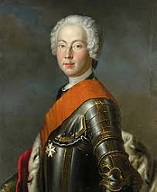





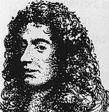



1735 There is a diphtheria epidemic in the North Am. colonies, killing thousands (ends 1737). On Apr. 13 Japanese emperor (since 1709) Nakamikado (b. 1702) abdicates in favor of his eldest son Sakuramachi (1720-50) (personal name Teruhito), who becomes Japanese emperor #115 (until June 9, 1747), going on to be said to be the reincarnation of Prince Shotoku (573-621), restoring the ricey imperial rites of rice. On May 17 margrave (since 1708) George Frederick Charles (b. 1688) dies, and his son Frederick "the Beloved" (1711-63) becomes margrave of Brandenburg-Bayreuth (until Feb. 26, 1763), going on to promote the sciences and arts while leaving govt. affairs to his secy. Philipp Elrodt, a puppet of his Prussian wife Wilhelmine, daughter of Frederick William I of Prussia and granddaughter of George I of Britain. On June 29 the Witchcraft Act of 1604 is repealed, decriminalizing witchcraft in Britain - sorry, boys, no more strip searches? In Sept. German-born New York Weekly Journal publisher John Peter Zenger (1697-1746) is tried in New York City Hall for public criticism which fosters "an ill opinion of the government"; he is defended by aged Scottish-born atty. Andrew Hamilton (1676-1741) of Philadelphia, Penn. (no relation to Alexander Hamilton); after claiming the truth of his article as his defense, and the judge ruling it unacceptable, the jury acquits him anyway in a landmark freedom of the press case in New York which emboldens the press to criticize public officials more freely. I'm T-N-T, I win the fight, I'm T-N-T, the power of love? On Oct. 8 emperor (since Dec. 27, 1722) Yongzheng (b. 1678) dies, and his son Hong Lee (Hongli) becomes Qing (Manchu) emperor #4 of China Qian Long (Qianlong) (Ch'ien Lung) (Gao Zong) (Kao-tsung) (1711-1799) (until Feb. 9, 1796), the greatest Manchu emperor of China, forcibly uniting China and establishing a cultural orthodoxy, not to mention insulting the Beatles?; Tang Ying becomes supt. of the imperial kilns at Jingdezhen, developing the technique of opaque famille rose overglaze enamels and use of red carmine derived from gold. The Turko-Persian War (begun 1734) ends; meanwhile Russia pulls out of the War of the Polish Succession and begins the Fifth Russo-Turkish War, allying with Austria (ends 1739). Don Carlos of Spain is crowned as Charles IV of the Two Sicilies, and recognized by the Treaty of Vienna of 1735. William Pitt is elected MP for Old Sarum. Missouri (Mo.) is settled at St. Genevieve. The Turnpike Trusts in Britain, originally set up in 1706 are extended this year, leading to rioting. Bishop August Gottlieb Spangenberg (1704-92) of Herrnhut, Germany founds the Moravian Church in the North Am. colony of Georgia on the estate of George Whitefield, then after they refuse to fight against the Spanish and get evicted in 1739 make like gone with the wind and move to Philadelphia, Penn. on Whitefield's sloop; meanwhile in Ga. the sale of alcoholic spirits is prohibited (until 1742), and slavery is abolished until 1749 when rice cultivation arrives; meanwhile Count Nikolaus (Nicolaus) Ludwig von Zinzendorf und Pottendorf (1700-60) attempts to stay in Saxony, being ordained as a Lutheran minister in 1734, but the orthodox Lutherans get him banished in 1736 (until 1748), causing him to travel founding new congregations in the Netherlands, England, Ireland, Germany, Estonia, Livonia, and Penn. Viscount Bolingroke gives up on getting back in power in England and returns to France, claiming retirement (until 1742). Scottish-born Presbyterian Church of Ireland revivalist William Tennent (1673-1746) sets up the Log College in Neshaminy, Penn., which turns out more of the same, incl. his son Gilbert, who becomes the leader of the New Light Schism (1741), and eventually helps raise funds for the College of New Jersey (Princeton). Jonathan Edwards discovers religious brainwashing techniques during a religious crusade in Northampton, Mass.; "Our people do not so much need to have their heads stored as to have their hearts touched." Thomas Fairfax, 6th Lord Fairfax of Cameron (1693-1782) of Yorkshire visits his giant estates in Va., comprising 25% of the colony, which he put in the charge of his cousin Sir William Fairfax; in 1747 he moves permanently to the Shenandoah Valley, and has his friend George Washington survey the area; too bad, he remains a loyalist during the Am. Rev. - a fairfax weather friend? The Jersey Devil is born in Pine Barrens, N.J. when pregnant Mother Leeds curses her 13th child. Kidderminster in Worcestershire, England on the Stour River begins manufacturing ingrain carpets, showing warp and filling on each side, which become famous; in 1749 a Brussels loom is imported, and they begin making Brussels carpets too. The Imperial Ballet School in St. Petersburg is founded. The ballad opera Flora becomes the first musical theater performed in British Am. in Charleston, S.C. The original French Coustous never got wet? Guillaume Coustou the Elder (177-1746) becomes dir. of the Academy of Painting and Sculpture in Paris, where his brother Nicolas Coustou had been rector in 1720-33; meanwhile Guillaume Coustou the Younger (1716-77) studies with his father, insuring France of a liberal supply of marble people and animals. Charles VI founds the anally-retentive (saddle, leg, and hand control only) Spanish Riding School in Lipizza (Lipica) (near Trieste), Slovenia, and begins recording the bloodlines of the Lipizzaners; he also builds the winter Riding Hall in the imperial palace in Vienna. The Boston Evening Post begins pub. Poor Richard's Almanack for 1735. Sports: The Royal Burgess Golfing Society in Edinburgh is founded. Science: On Dec. 5 28-y.-o. Swiss genius mathematician Leonhard Euler (1707-83) pub. his solution to the Basel Problem, which was first proposed in 1650 by Pietro Mengoli and baffled generations of mathematicians incl. the Bernoullis, making him an instant star; the problem asks for the infinite sum of (1/n^2), which turns out to be pi squared divided by 6. On Dec. 6 French-born English surgeon Claudius Amyand (1680-1740) performs the first successful Appendectomy on 11-y.-o. Hanvil Anderson at St. George's Hospital in London, England. Spin it round, spin it round? The Paris Academie Francaise is rocked by a controversy between supporters of Isaac Newton (1643-1727), led by Pierre de Maupertuis (1698-1759), who believe that the Earth is slightly flattened at the poles, and supporters of Jacques Cassini (1677-1756), who believe it is instead flattened at the equator. Nonfiction: The Bible is trans. into Lithuanian. Arthur Collins, Peerage of England (1709-35). Benoit de Maillet (1656-1738), Telliamed; the evolutionary hypothesis. George Hadley, Concerning the Cause of the General Trade Winds. S. Hale, Vegetable Statics; tr. into French by Comte de Buffon. Carl Linnaeus (1707-78), Systema Naturae; describes his binomial nomenclature classification system for flora, extending it to fauna in the 10th ed. (1758); in the 12th ed. (1767) he pub. a classiication of five "varieties" of the human species, possessing physiognomic characteristics "varying by culture and place", incl. Americanus (red, choleric), Europeanus (white, sanguine), Asiaticus (yellow, melancholic), Africanus (Afer) (black, phlegmatic), Monstrosus (mythologic humans) incl. Homo anthropomorpha (troglodyte, satyr, hydra, phoenix). John Oldmixon (1673-1742), History of England During the Reigns of William and Mary, Anne and George I. Voltaire (1694-1778), Siecle de Louis XIV (The Age of Louis XIV) (1735-56). John Wesley (1703-91), Journals (1735-90). Music: G.F. Handel (1685-1759), Ariodante, HWV 33 (opera) (Covent Garden Theatre, London) (Jan. 8); libretto adapted by Antonio Salvi from Ludovico Ariosto's "Orlando Furioso"; set in Scotland; stars Giovanni Carestini as Ariodante; a hit finally, getting 11 performances, and allowing Covent Garden to successfully compete against the Prince of Wales' rival Opera of the Nobility; Alcina (opera) (Apr. 16) (Covent Garden, London); based on the poem "Orlando Furioso", set in Charlemagne's day, about heroic knight Ruggiero (Giovanni Carestini), who loves Bradamante (Maria Caterina Negri), and flees with her on a hippogriff (flying horse) to an island, only to meet up with sister sorceresses Alcina (Anna Maria Strada del Po) and Morgana (Cecilia Young), who seduce every knight they can get, then turn them into stones, animals or plants after they tire of them; features dancer Marie Salle; features Tornami a Vagheggiar, Ah, Mio Cor, and Verdi Prati; a big hit, after a last performance in 1738 it costs too much for the lavish sets it is not performed again until 1928 in Leipzig. Giovanni Battista Pergolesi (1710-36), L'Olimpiade (opera) (Jan. 31) (Rome); incl. Quel Destrier Il Flaminio (opera) (Naples). Jean-Philippe Rameau (1683-1764), Les Indes Galantes (opera-ballet) (Academie Royale de Musique et Danse, Paris) (Aug. 23); incl. Ouverture, Les Sauvages (The Savages of America), Les Incas du Perou (The Incas of Peru), Le Turc Genereux, Chaconne. Plays: P.C. Nivelle de La Chaussee (1692-1754), Le Prejuge a La Mode (La Préjugé à La Mode) (The Fashionable Prejudice) ("comedie larmoyante"). Antonio Jose da Silva (1705-39), Os Encantos de Medea. Poetry: Alexander Pope (1688-1744), Prologue to the Satires; full of great quotes, incl. "I was not born for courts or great affairs;/ I pay my debts, believe, and say my pray'rs"; "Beauty that shocks you, parts that none will trust,/ Wit that can creep, and pride that licks the dust"; "To laugh were want of goodness and of grace;/ And to be grave, exceeds all pow'r of face"; "Bear, like the Turk, no brother near the throne"; An Epistle to Dr. Arbuthnot, containing the soundbyte "Who breaks a butterfly upon a wheel?" William Somerville (1675-1742), The Chace (Chase); his only hit. Poetry: Jonathan Swift (1667-1745), Cassinus and Peter: A Tragical Elegy; "Then gave him some familiar Thumps,/ A Colelge Joke to cure the Dumps." Fiction: Johnathan Swift (1667-1745), Collected Works (vols. 1-4 of 20 vols.) (1735-72). Births: Am. Rev. patriot and silversmith (Freemason) Paul Revere (d. 1818) on Jan. 1 in Boston, Mass.; educated at North Grammar School; his home, built about 1670 becomes the oldest bldg. in downtown Boston by modern times. Am. Roman Catholic Jesuit archbishop of Baltimore John Carroll (d. 1815) on Jan. 8 in Upper Marlborough, Md.; first U.S. Roman Catholic bishop (1790). British Adm. of the Fleet John Jervis, 1st Earl of Vincent (d. 1823) on Jan. 9 in Meaford Hall, Staffordshire. Austrian Field Marshal Baron Joseph (Jozsef) Alvinczi von Borberek (d. 1810) on Feb. 1 in Alvinc (Alwintz), Transylvania; an ethnic Magyar. French scientist-mathematician Alexandre-Theophile Vandermonde (d. 1796) on Feb. 28. Swedish chemist Torbern Olaf Bergman (d. 1784) on Mar. 20 in Katharineberg; first chemist to use the A, B, C notation for chemical species; sponsor of German chemist Karl Wilhelm Scheele. Am. Rev. War leader (DOI signer) Button Gwinnett (d. 1777) on Apr. 10 in Gloucestershire, England; emigrates to the U.S. in 1762. Austrian field marshal, debauchee and writer ("the Prince of Europe") Charles Joseph, 7th Prince de Ligne (d. 1814) on May 23 in Brussels, Belgium. French marshal (Freemason) Francois Christophe Kellermann (de Kellermann, 1st Duc de Valmy) (d. 1820) on May 28 in Strasbourg; born to an old Saxon family; father of Francois Etienne de Kellermann (1770-1835); grandfather of Francois Christophe Edmond de Kellermann (1802-68). Am. physician John Morgan (d. 1789) on June 10 in Philadelphia, Penn.; educated at the U. of Edinburgh, and U. of Penn. German composer Johann Christian Bach (d. 1782) on Sept. 5; youngest son of Johann Sebastian Bach (1685-1750). Scottish banker (in London) Thomas Coutts (d. 1822) on Sept. 7 in Edinburgh; husband (1815-) of Harriet Mellon (1777-1837); grandfather of Angela Burdett-Coutts (1814-1906). English scientist James Keir (d. 1820) on Sept. 20 in Stirlingshire; educated at the U. of Edinburgh. English Baptist-Methodist "Come Thou Fount of Every Blessing" hymnodist Robert Robinson (d. 1790) on Sept. 27 in Swaffham, Norfolk. English Whig PM (1768-70) (Unitarian) Augustus FitzRoy, 3rd Duke of Grafton (d. 1811) on Sept. 28; educated at Westminster School, and Peterhouse, Cambridge U. English instrument maker Jesse Ramsden (d. 1800) on Oct. 15. U.S. Federalist pres. #2 (1797-1801) and vice-pres. #1 (1789-97) ("Father of the U.S. Navy") John Adams (d. 1826) on Oct. 30 (Oct. 19, old style) at Braintree (now Quincy), Norfolk County, Mass.; born into a family of Puritan farmers; cousin of Samuel Adams (1722-1803); the next four U.S. presidents (all) born in Mass. are born in Norfolk County (John Quincy Adams, JFK, George H.W. Bush). English abolitionist leader Granville Sharp (d. 1813) on Nov. 10 in Durham; learns to read Greek and Latin, and play two flutes simultaneously, and signs his name G#. English adm. Sir Samuel Greig (d. 1788) on Nov. 30. Italian mathematician (inventor of polar coordinates) Gregorio Fontana (d. 1803) on Dec. 7 Villa di Nogaredo; brother of Felice Fontana (1730-1805). Am. Rev. War physician-scientist-politician Hugh Williamson (d. 1819) on Dec. 7 in West Nottingham Township, Chester County, Penn.; educated at the College of Philadelphia. English sculptor Thomas Banks (d. 1805) on Dec. 29 in London. British writer-traveler Elizabeth Marsh (Crisp) (d. 1785) in Jamaica; first woman to write about the Maghreb. British adm. John MacBride (d. 1800) in Scotland. Am. Black Freemasonry founder (black) Prince Hall (d. 1807) in Bridgetown, Barbados. French essayist-agriculturist Michel Guillaume Jean De Crevecoeur (AKA J. Hector St. John) (d. 1813); in America 1754-80, 1783-90. Russian painter Dmitry Levitsky (d. 1822). Deaths: English clergyman-poet Samuel Wesley the Elder (b. 1662) on Apr. 25. Greek deacon and venacular Bible champ Seraphim (b. 1670) in Orkhotsk Prison, Siberia; dies while serving a 1732 life sentence as a spy. English historian Thomas Hearne (b. 1678). Chinese Qing emperor #5 (#3) Yongzheng (b. 1678) on Oct. 8 in Beijing. Dutch writer Justus van Effen (b. 1684) on Sept. 18 in 's-Hertogenbosch. Swedish ichthyology founder Peter Artedi (b. 1705) on Sept. 27 in Amsterdam (accidental drowning); "Here lies poor Artedi, in foreign land pyx'd/ Not a man nor a fish, but something betwixt,/ Not a man, for his life among fishes he past,/ Not a fish, for he perished by water at last." (George Bernard Shaw).
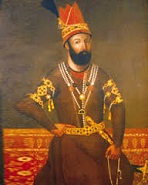



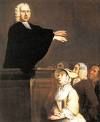

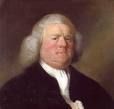
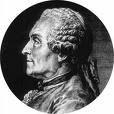

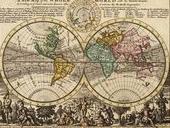
1736 The number of poor receiving public assistance in Boston, Mass. rises to 4K from 500 in 1700. On Feb. 12 Francis Stephen, Duke of Lorraine marries Maria Theresa; as a marriage condition, and to end the war between Austria and France he exchanges his Duchy of Lorraine to Poland for the Italian state of Tuscany; Spain gains Naples and Sicily, and Sardinia gains most other Italian states. On Mar. 25 (Palm Sun.) the Chickawaw Campaign of 1736 starts with the Battle of Ogoula Tchetoka NW of modern-day Tupelo, Miss., in which 130 French forces plus 350 native warriors from Upper La. attack a fortified Chickasaw village under orders of La. gov. Jean-Baptiste Le Moyne de Bienville in order to get at the Natchez Indians it is harboring, and get bloodily repulsed, with 21 French POWs taken, and 19 of them burned, most while still alive, incl. Francois-Marie Bissot, Sieur de Vincennes (b. 1700); on May 26 544 French forces plus 600 Choctaws and 45 Africans try it again in the Battle of Ackia (Long Town) S of modern-day Tupelo, Miss., with the same results; the well-armed (with British weapons) Chickasaw continue to fend off attacks for the next 20 years. In Mar. Nadir (Nader) Shah (Khan) (1688-1747), the last great Asian conqueror consolidates his power, deposes infant Abbas III, and proclaims himself shah, ending the Persian Safavid Dynasty, and founding the Afsharid Dynasty (ends 1794), moving the capital to Mashhad (Mashad) (Pers. "place of martyrdom") in Razavi Khorasan Province in E Persia 500 mi. E of Tehran, going on to extend his conquests beyond the frontiers, starting with Herat and Oman this year, and going all the way to India, while bankrupting the country with taxes and trying to convert Persia to the Sunni faith by a trick of proposing that a 5th Sunni law school called the ooh-baby-baby Ja'fari School (named after Shiite imam #6 Jafar as-Sadiq) be created to combine them; too bad, it don't push good, and when he is assassinated in 1747, it's a stillborn baby? - get ready for more sales options and a more knowledgable sales staff? In Mar. Cologne-born German adventurer Theodor Stephan Freiherr von Neuhoff (1694-1756) lands in Corsica with a bunch of Corsican rebels and exiles and help from the bey of Tunis, and is elected king Theodore I of Corsica (until 1743), attempting to free Corsica from French-Genoese control, only to flee in Nov. to seek foreign assistance, landing in Spain and Naples, then Amsterdam, where he arrested for debt, returning to Corsica in 1738, 1739, and 1743, then landing in debtors' prison in London in 1749-55, paying for his freedom by signing over his kingdom, living on the charity of Horace Walpole et al. until his 1756 death, after which is alleged son Col. Frederick (1725-97) claims to be prince of Caprera, pushing himself unsuccessfully in high circles in London and dying in poverty. On Apr. 14 the Porteous Riots rock Edinburgh after ash-hole city guard capt. John Porteous (1695-1736) hangs a smuggler hero then cuts his body down against the wishes of the mob, after which he orders his men to fire above their heads, and they accidentally shoot people in high windows, causing them to ape, after which his men shoot into the mob, killing six; Porteous is tried on July 5, found guilty of murder, and sentenced to die on Sept. 8, but the British govt. lets him appeal, causing a mob of 4K to drag him from his cell in Tolbooth Prison and lynch him on Sept. 7; Scottish poet Allan Ramsay is in the original mob. In Dec. after Thomas Cresap is arrested by Md. authorities, but Cresap's War continues. The weavers of Spitalfields Market in London riot to protest the introduction of Irish weavers, forcing the military to intervene. The colony of Pennsylvania (Penn.) forms an alliance with the New York-based Six Nations of the Iroquois after the latter conquer the aboriginal tribes of Pensylvania. Tall handsome cross-eyed Oxford-educated English Methodist preacher George Whitefield (1714-70) (pr. WHIT-field) begins preaching in England at age 22, wowing huge crowds with a booming voice that doesn't need to be raised even in front of a crowd of 30K; actor David Garrick ("the George Whitefield of the stage") claims he'd pay a thousand pounds to be able to say the word "oh" as good as him; his mere pronouncing of the word "Mesopotamia" causes women to weep?; his sermons are all based on the text "be born again" (John 3:3). Chelyabinsk in Russia on the Miass River E of the Ural Mts. is founded. Moravian settlers led by bishop Peter Boehler (Böhler) (1712-75) found Bethlehem, Nazareth, and Lititz in Penn. William Boyce (1711-79) is appointed composer to the Chapel Royal in England, writing music for church services. The weekly Virginia Gazette begins pub. (until 1780). Poor Richard's Almanack for 1736. Glass manufacture begins in Venice at Murano. India rubber (hard rubber caoutchouc) is introduced to England. Mary Lisle becomes the first female brewer in the U.S., opening the Edinburgh Brewhouse Brewery in Philly (closes 1751). Architecture: Queen's Square in Bath, England (begun 1729) is finished. In 1735-40 French architect Germain Boffrand designs the interiors of the Hotel de Soubise in Paris, pioneering the Rococo (Louis XV) style. Science: Science reaches out and touches Father, er, Mother Earth? French scientist Charles Marie de La Condamine (1701-74) leads an expedition to Ecuador-Peru to measure a degree of longitude at the equator, siting the zero degree latitude line (Middle of the World) near Quito, and discovering rubber (insert gratuitous sex joke here?); meanwhile Anders Celsius and Pierre de Maupertuis lead an expedition to Lapland to measure a degree of longitude at the North Pole, and verify Isaac Newton's prediction that the Earth is an oblate spheroid - of course, it's a woman not a man? After an epidemic of diphtheria hits Boston, Mass. in 1735-6, Scottish-born physician William Douglass (1691-1752) first describes Scarlet Fever, AKA throat plague. Swiss #1 mathematician Leonhard Euler (1707-83) solves the Konigsberg (Königsberg) Bridge Problem, and founds the study of Analytical Mechanics. English clockmaker John Harrison (1693-1776) completes the first accurate chronometer for determining longitude, making long-distance sea travel possible along with a global sea empire, and applies for the £20K Longitude Prize offered by the British govt.; too bad, they play games and never award it to him as he goes through five major versions H1-H5; in 1773 after George III personally intervenes, Parliament gives him a different monetary award. Nonfiction: Thomas Bayes (1701-61), An Introduction to the Doctrine of Fluxions, and a Defence of the Mathematicians Against the Objections of the Author of the Analyst; defends Isaac Newton against George Berkeley, getting him elected to the Royal Society in 1742. Joseph Butler (1692-1752), The Analogy of Religion, Natural and Revealed; defends Anglican Christianity against English Deism, making him a pop star. Pierre Francois Xavier de Charlevoix (1682-1761), Histoire et description générale du Japon. Leonhard Euler (1707-83), Mechanica Sive Motus Analytice Exposita. Herman Moll (1654-1732), Map of the World (posth.); shows the trade winds. Henry St. John, Viscount Bolingbroke (1678-1751), Letters on the Spirit of Patriotism, On the Idea of a Patriot King, and on the State of Parties at the Accession of King George the First. William Warburton (1698-1779), The Alliance between Church and State; or The Necessity and Equity of an Established Religion. Christian Wolff (1679-1754), Theologia Naturalis (1736-7). Music: G.F. Handel (1685-1759), Atalanta (opera) (Covent Garden Theatre, London) (May 12); libretto based on Belisario Valeriani's "La Caccia in Etolia"; composed for the marriage of George II's eldest son Prince Frederick of Wales; the debut closes with a big fireworks display; incl. the arioso Care Selve, Ombre Beate. Giovanni Battista Pergolesi (1710-36), Stabat Mater (Mass in F); the important matter of Jesus' conversation with Mother Mary on the cross; biggest musical hit of the cent.? Art: Pompeo Batoni (1708-87), Christ with Sts. Julian, Basilissa, Celsus, and Marcionilla (1736-8). William Hogarth (1697-1764), The Good Samaritan; The Pool of Bethesda; both painted on the staircase of St. Bartholomew's Hospital; The Four Times of Day. Plays: Henry Fielding (1707-54), Pasquin (satire). Carlo Goldoni (1707-93), Enrico Re di Sicilia (tragedy); Rinaldo di Montalbano (tragicomedy). George Lillo (1693-1739), Fatal Curiosity. Pierre de Marivaux (1688-1763), Le Legs. Antonio Jose da Silva (1705-39), The Labyrinth of Crete (Nov.). Voltaire (1694-1778), Mahomet the Prophet; or, Fanaticism; "But that a camel-merchant [Muhammad] should stir up insurrection in his village; that in league with some miserable followers he persuades them that he talks with the angel Gabriel; that he boasts of having been carried to heaven, where he received in part this unintelligible book, each page of which makes common sense shudder; that, to pay homage to this book, he delivers his country to iron and flame; that he cuts the throats of fathers and kidnaps daughters; that he gives to the defeated the choice of his religion or death: this is assuredly nothing any man can excuse, at least if he was not born a Turk, or if superstition has not extinguished all natural light in him." Births: Scottish engineer and steam engine inventor James Watt (d. 1819) on Jan. 19 in Greenock. Italian mathematician-astronomer Joseph-Louis Lagrange (Giuseppe Luigi Lagrangia or Lagrancia) (d. 1813) on Jan. 25 in Turin, Piedmont; emigrates to France in 1787. German Prussian Hohenzollern margrave of Brandenburg-Ansbach (1757-91) (last) Christian Frederick Charles Alexander (d. 1806) on Feb. 24 in Ansbach; son of magrave Charles William Frederick (1712-57) and Friederike Luise of Prussia, daughter of Frederick William I, and sister of Frederick II, granddaughter of George I of Britain, and niece of George II of Britain; husband of Frederica Caroline (-1791) and (1791-) Elizabeth Craven (1750-1828), daughter of the 4th earl of Berkeley, England. Am. Shakers founder Mother Ann Elizabeth Lee (d. 1784) on Feb. 29 in Manchester. English Shakespearean commentator George Steevens (Stevens) (d. 1800) on May 10 in Poplar, East London; educated at Eton College, and King's College, Cambridge U. Am. Rev. statesman-orator Patrick Henry (d. 1799) on May 29 in Studley, Hanover County, Va.; Scottish immigrant father; husband (1732-) of Sarah Winston Syme. English adm. Sir John Francis Edward Acton, 6th Baronet (d. 1811) on June 3 in Besancon, France; father of Sir Ferdinand Richard Edward Dalberg-Acton (1801-37) and Cardinal Acton (1803-47); grandfather of John Dalbert-Acton, 1st baron Acton (1834-1902). Spanish (Mexican) explorer Juan Bautista de Anza Bezerra Nieto (d. 1788) on July 6/7 in Fronteras (near Arizpe), Sonora. French astronomer-orator-politician ("the Benjamin Franklin of the French Rev.") Jean-Sylvain Bailly (d. 1793) on Sept. 15 in Paris; first simultaneous member of the French Academy of Science, Academie Francaise, and Academie des Inscriptions since Bernard le Bovier de Fontennlle; could hang-five with the leading scientists of his day, but gets caught up in French Rev. Fever, creates the French Nat. Assembly, and ends up getting guillotined. Am. Rev. leader (DOI signer) Carter Braxton (d. 1797) on Sept. 16 in Newington Plantation, King and Queen County, Va.; educated at the College of William and Mary. Scottish "Ossian" poet James Macpherson (d. 1796) on Oct. 27 in Ruthven, Inverness; educated at the U. of Edinburgh. Swiss portraitist Anton Graff (d. 1813) on Nov. 18 in Winterthur. English mathematician Edward Waring (d. 1798). Am. Rev. War soldier Maj. Gen. Daniel Morgan (d. 1802) in Hunterdon County, N.J.; of Welsh ancestry. French physicist-philosopher Charles-Augustin de Coulomb (d. 1806) in Angouleme; inventor of the torsion balance. French painter Jean-Jacques de Boissieu (d. 1810). Am. Rev. War hero David Kennison (d. 1851) in Chicago, Ill.; longest surviving partcipant in the 1773 Boston Tea Party. Deaths: English bookseller-publisher Jacob Tonson the Elder (b. 1655) on Mar. 17. English architect Nicholas Hawksmoor (b. 1661) on Mar. 25. German architect Mattheus Daniel Poppelmann (b. 1662) on Jan. 17 in Dresden. Italian Prince Eugene of Savoy (b. 1663). Swedish gen. Friherre Carl Gustaf Armfeldt (b. 1666) on Oct. 24 in Perna, Finland. English scientist Stephen Gray (b. 1666). Ottoman sultan (1703-30) Ahmed III (b. 1673) on July 1 - no more Ahmeds for you, Turkey? English publisher Barnaby Bernard Lintot (b. 1675) on Feb. 9 in Sussex. Italian architect Filippo Juvarra (b. 1678) on Jan. 31 in Madrid. British vice-adm. James Berkeley, 3rd earl of Berkeley (b. 1680) on Aug. 17 in Aubigny, France. Portuguese historian-statesman Manuel Teles da Silva, 3rd marquis of Alegrete (b. 1682) on Feb. 9. German physicist Gabriel Daniel Fahrenheit (b. 1686) on Sept. 16 in The Hague, Netherlands - reached only Fahrenheit 50? English Orientalist George Sale (b. 1697) on Nov. 13 in The Strand (fever). French-Canadian explorer Francois-Marie Bissot, sieur de Vincennes (b. 1700) on Mar. 25 near Fulton, Miss.; burned by the Chickasaws. Italian composer Giovanni Battista Pergolesi (b. 1710) on Mar. 16/17 in Puzzuoli (TB).











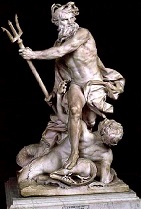
1737 On Feb. 7 Helene (Hélène) de Courtenay, Marquise de Bauffremont (1689-1768), the last female of the Courtenay line in France has her title of Princess du Sang Royal de France suppressed by the parliament of Paris. On Mar. 17 the first-ever St. Patrick's Day parade is held in Boston, Mass. by mainly Protestant Irish immigrants. In Apr. German-born English composer G.F. Handel suffers a stroke, paralyzing his right arm and messing up his eyesight, causing him to head for Aix-la-Chapelle to take hot baths; luckily, he recovers, Hallelujah. In Apr. Somerset, England-born Henry Fielding (1707-54) debuts his political satire The Historical Register for the Year 1736, which along with the anon. (Fielding?) political satire The Golden Rump, which knocks the admin. of PM (1721-42) Robert Walpole cause so much alarm among English authorities that they pass the Licensing Act of 1737, putting theatres under the direct control of the Lord Chamberlain (until 1968), ending Fielding's dramatic career; the number of London theatres is restricted; modified by the Theatres Acts of 1843 and 1934, and repealed by the Theatres Act of 1968. In May Mt. Vesuvius in Italy erupts. As Fat Albert would say, get back in the sack and hit it? On July 9 the War of the Polish Succession (begun 1733) ends when grand duke of Tuscany #7 (since Oct. 31, 1723) Gian Gastone de' Medici (b. 1671), the last of the Medicis dies, and by the terms of the 1731 Treaty of Vienna the grand duchy is given to Duke Francis III Stephen of Lorraine (later emperor Francis I) (remaining in the Lorraine family until 1859, except during the French Rev. of 1799-1814) after marrying Maria Theresa, heiress of the Austrian Hapsburg dominions; unsuccessful Polish throne claimant Stanislas Leszczynski acquires Lorraine by way of compensation (it passes to France upon his death). On July 9 George Schmidt becomes the first Protestant missionary at the South African Cape, going on to evangelize among the Khoi (until 1742). HRE Charles VI enters the Ottoman-Russian War on the Russian side. George II quarrels with his son Frederick Louis, Prince of Wales. Tsarina Anna forces the nobles of her homeland Courland (in Latvia) to accept her beau duke Ernst Johann von Biron (Biren), Duke of Courland (1690-1772) as their duke. Penn. deploys military forces against Md. Nailers from Worcester march to Birmingham to protest their beefs with iron merchants. The first copper coins in the American colonies are minted in Conn. William Penn's sons dispossess the Delawares of the Forks of Delaware by the crooked Walking Purchase (Treaty). There is an earthquake in Calcutta, India. William Byrd II (1674-1744) of Westover Plantation, Charles County, Va. founds Richmond, Va. on the James River (modern pop. 250K) on land he inherited from his daddy Col. William Byrd I (1652-1704), who came from Shadwell, London England in the late 1660s. St. Vincent de Paul (1576-1660) is canonized by Pope Clement XII. 28-y.-o. Samuel Johnson (b. 1709), former master of a school in Edial (near Lichfield, Staffordshire) he started with funds from marrying widow Mrs. Elizabeth Porter in 1735 arrives broke in London, hoping to make money via writing, and by next year is a regular contributor to Gentleman's Mag.; he is accompanied by his pupil David Garrick (b. 1717), who studies law, then sells wine, and finally becomes a stage actor; "No man but a blockhead ever wrote, except for money" (Johnson). Yellow-green 142 proof Chartreuse Elixir is first distilled from 130 plants by the cloistered Carthusian monks in Chartreuse, France (founded 1084) from an ancient ms. given to them in 1605; for beverage use, 110 proof Green Chartreuse is also sold. Poor Richard's Almanack for 1737. William Boys begins conducting the week-long Three Choirs Festivals (1737-45). Architecture: After the Berlin Fortress is demolished in 1734, the Berlin Customs Wall is built around Berlin, Prussia, with 14 gates, each named to the city to which its road leads incl. Spandauer Tor, St. Georgen Tor, Stralower Tor, Coepenicker Tor, Leipziger Tor, and Neues Tor; in addition the Spree River is blocked with the Oberbaum and Unterbaum custom gates made of heavy tree trunks covered in metal spikes that block the river at night; in 1786-1802 the wooden stockades are replaced by 4m-high stone walls; the New Gate is built in 1832, followed by the Anhalt Gate (1840), Koepenick Gate (1842), and Water Gate (1848); in 1841 the Potsdam Station for railroad traffic is built, followed by the Anhalt Station (1842), Frankfurt Station (1842), Stettin Station (1842), Hamburg Station (1846); in 1860 the Customs Wall is removed, and on Jan. 1, 1861 Berlin amalgamates its suburbs, doubling city pop. Aberdeen, Scotland-born architect James Gibbs (1682-1754) begins the round English Palladian (neoclassical)-style Radcliffe Camera (AKA Rad Cam, Radders) bldg. at Oxford U. (opened on Apr. 13, 1749), financed with £40K bequeathed by Oxford-loving royal physician John Radcliffe (1652-1714); it ends up as extra reading rooms for the Bodleian Library - check that out that secret vampire reading room? Teatro di San Carlo in Naples, Italy, founded by Charles VII of Naples opens on Nov. 4, becoming the world's largest opera house (3.3K cap.), and going on to become the oldest opera house in Europe to survive to modern times. Inventions: Jacques de Vaucanson (1709-83) of France builds the Transverse Flute Player, a lifesize automaton that plays the pipe and tabor and has a 12-song repertoire; next year he puts skin on it so it can play the flute; the first true robot?; next year he builds the Tambourine Player and the Digesting (Defecating) Duck, with 400+ moving parts, able to flap its wings and drink, eat, and shit from a hidden container (no actual digestion) using the world's first flexible rubber tube. Nonfiction: Jean-Francois Blondel (1705-74), De la Distribution des Maisons de Plaisance, et de la Decoration des Edifices in General (1837-8); big hit, with 155 engraved plates, causing him to begin teaching architecture classes in the Ecole des Arts in Paris in 1740. Cornelius van Bynkershoek (1673-1743), Quaestiones Juris Publici. Alexander Cruden, Concordance of the Holy Scriptures; becomes std. work. Ludvig Holberg (1684-1754), Description of Bergen. Ignacio de Luzan Claramunt de Suelves y Gurrea, Poetica. Lady Mary Wortley Montagu, The Nonsense of Common Sense. Johann Jacob Moser (1701-85), German Law. William Oldys (1696-1761), The British Librarian. Rene de Reaumur (1683-1757), History of the Insects. Thomas Simpson (1710-61), Treatise of Fluxions; derives Simpson's Rule for numerical approximation of definite integrals, which he gets credit for even though it was used by Galileo's student Bonaventura Cavalieri in 1639, and by Johannes Kepler. John Wesley (1703-91), Psalms and Hymns (Charleston). William Whiston (1667-1752) (tr.), The Works of Josephus. Music: G.F. Handel (1685-1759), Arminio (HWV 36) (opera) (Covent Garden Theatre, London) (Jan. 12); based on a libretto by Antonio Salvi; about German hero Arminius (Domenico Annibali), who kicked Roman butt bigtime in 9 C.E., and his wife Thusnelda (Anna Maria Strada); flops after 5 performances; Giustino (HWV 37) (opera) (Covent Garden Theatre, London) (Feb. 16); libretto adapted from Pietro Pariati's "Giustino", based on Nicolo Beregan's "Il Giustino"; stars Domenico Annibali as Giustino. Berenice, Regina d'Egitto, HWV 38 (Berenice, Queen of Egypt) (opera) (Covent Garden Theatre, London) (May 18); based on a 1709 libretto by Antonio Salvi; about Cleopatra Berenice (Anna Maria Strada), daughter of Ptolemy IX in 81 B.C.E.; flops after 4 performances, and is not restaged until 1985; incl. Si, Tra I Ceppi; Giustino (HWV 39) (opera); incl. Se Parla Nel Mio Cor. Jean-Philippe Rameau (1683-1764), Castor et Pollux (opera) (Academie Royale de Musique, Paris) (Oct. 24); a flop until he rewrites it in 1754, becoming one of his best works. Art: Lambert-Sigisbert Adam l'Aine (1700-59), The Triumph of Neptune Stilling (Calming) the Waves; placed in the Louvre, home of the French Academy, which he is elected to this year. Jean-Baptiste-Simeon Chardin (1699-1779), The Draughtsman. Louis-Francois Roubiliac (1695-1762), Handel. Plays: Henry Fielding (1707-54), The Historical Register for the Year 1736 (satire) (Little Theatre, Haymarket, London) (Mar. 21). Samuel Johnson (1709-84), Irene; based on Voltaire's 1778 play "Irene", about Sultan Mahomet II; first performed at the Theatre Royale in Drury Lane on Feb. 6, 1749, accompanied by Johnson complaining "Sir, the fellow wants me to make Mahomet run mad, that he may have an opportunity of tossing his hands and kicking his heels." Pierre de Marivaux (1688-1763), Les Fausses Confidences. Antonio Jose da Silva (1705-39), Guerras do Alecrim et Mangerona; As Variedades de Proteo (May). Poetry: Matthew Green (1696-1737), The Spleen; poetic medicine?; "I never sick by drinking grow,/ Nor keep myself a cup too low"; "I always choose the plainest food/ To mend viscidity of blood"; "Fling but a stone, the giant dies". Births: German poet-critic Heinrich Wilhelm von Gerstenberg (d. 1823) on Jan. 3 in Tondern, Schleswig; educated at the U. of Jena. French chemist-politician Louis-Bernard Guyton, Baron de Morveau (d. 1816) on Jan. 4 in Dijon; first to create systematic chemical nomenclature, incl. naming hydrogen. Am. Rev. leader and handwriting expert (known for being cocky) (Freemason) John Hancock (d. 1793) on Jan. 23 (Jan. 12 Old Style) in Braintree (modern-day Quincy), Mass.; son of Rev. John Hancock Jr. (1702-44), who baptizes John Adams; educated at Boston Latin School, and Harvard U.; one of the wealthiest men in British Am. French "Paul et Virginie" novelist-botanist Jacques-Henri Bernardin de Saint-Pierre (d. 1814) on Jan. 19 in Le Havre. Am. Rev. "Common Sense", "Rights of Man", "The Age of Reason" writer (Deist Rationalist-Freethinker) Thomas "Tom" Paine (Pain) (d. 1809) on Jan. 29 in Thetford, Norfolk, England; Quaker parents; emigrates the U.S. in 1774. Prussian field marshal (1807-) Count Friedrich Adolf von Kalckreuth (d. 1818) on Feb. 22 in Sotterhausen (near Sangerhausen). Thai Chakri king #1 (1782-1809) Rama I (Buddha Yodfa Chulaloke) (d. 1809) on Mar. 20 in Ayutthaya; part-Chinese mother. English "The History of the Decline and Fall of the Roman Empire" historian (Freemason) Edward Gibbon (d. 1794) on Apr. 27 in Putney, Surrey; educated at Magdalen College, Oxford U.; capt. in the New Hampshire Grenadiers; when his father dies in 1770, he moves to 7 Bentinck St., London, living comfortably, becoming an MP in 1774-80 - the smallest ape? His portrait bears a striking resemblance to fat pudgy-cheeked Roman emperor Nero? Am. Rev. War hero Col. Christopher Greene (d. 1781) on May 12 in Warwick, R.I. German physician (to Christian VII of Denmark) Count Johann Friedrich von Struensee (d. 1772) on Aug. 5 in Halle an der Saale. English "Castor and Pollux" #1 bust sculptor Joseph Nollekens (d. 1823) on Aug. 11 in London. French chef-pharmacist (potato advocate) Antoine-Augustin Parmentier (d. 1813) on Aug. 12 in Montdidier. Italian scientist (physiologist) Luigi Galvani (d. 1798) on Sept. 9. Am. Rev. leader (richest man in the colonies) Charles Carroll of Carrollton (d. 1832) on Sept. 19 in Annapolis, Md.; only Roman Catholic to sign the DOI, and the last surviving signer. Am. Rev. War loyalist poet-minister Jonathan Odell (d. 1818); on Sept. 25 in Newark, N.J.; educated at the College of N.J. (Princeton U.); with Joseph Stansbury (1742-1809) the most prominent loyalist poets during the Am. Rev. Am. composer-writer-politician (DOI signer) Francis Hopkinson (d. 1791) on Oct. 2 in Philadelphia, Penn.; educated at the College of Philadelphia (first graduate); studies music with James Bremner; claims to design the first U.S. flag; father of Joseph Hopkinson (1770-1842). Italian composer-harpsichordist Vincenzo Manfredini (d. 1799) on Oct. 22 in Pistoia (near Florence); son of Francesco Onofrio Manfredini (1684-1762). Am. diplomat (first U.S. diplomat) Silas Deane (d. 1789) on Dec. 24 in Groton, Conn.; educated at Yale U. Spanish dramatist-poet Nicolas Fernandez de Moratin (d. 1780) in Madrid; father of Leandro Fernandez de Moratin (1760-1828). French hostess Madame Susanne Necker (nee Curchod) (d. 1794) in Crassier, Vaud, Switzerland; daughter of the pastor; marries Jacques Necker in 1764 after Edward Gibbon tries and fails; mother of Madame de Stael (1766-1817). German writer (in England) Rudolf Erich Raspe (d. 1794). Scottish horticulturist William Forsyth (d. 1804). French surgeon Bernard Peyrilhe (d. 1804). Viennese composer Michael Haydn (d. 1806); younger brother of Franz Joseph Haydn (1732-1809). Russian adm. Count Alexey (Alexei) Grigoryevich Orlov (d. 1808); brother of Ivan Orlov (1733-91), Grigory Orlov (1734-83), Fyodor Orlov (1741-96), and Vladimir Orlov (1743-1831). U.S. postmaster gen. (1776-82) Richard Bache (d. 1811) in Settle, Yorkshire, England; emigrates to the U.S. in 1765; husband (1767-) of Sarah Franklin (1743-1808) (daughter of Benjamin Franklin); father of Richard Bache Jr. and Benjamin Franklin Bache (1769-98). Austrian gen. Baron Paul Davidovich (Pavle Davidovic) (d. 1814) in Buda. English actress Frances "Fanny" Abington (nee Barton) (d. 1815); in London; namesake of the Abington Cap. Hawaiian king (1782-1819) Kamehameha I (the Great) (d. 1819) (b. 1736?) in Kohala, Hawaii. Am. Rev. War financier (creator of the U.S. dollar sign in 1778) Oliver Pollock (d. 1823) in Coleraine, Ireland; emigrates to Penn. in 1760. Algerian Senussi Order founder (Sunni Muslim) Muhammad ibn Ali as-Senussi (d. 1859) near Mostaganem; educated at Al-Azhar U.; granfather of Idris I (1889-1983). Deaths: English historian John Strype (b. 1643) on Dec. 11. Italian violin maker Antonio Stradivari (b. 1644) on Dec. 18 in Cremona, Italy; dies after making 1,116 instruments incl. 960 violins, of which 450+ survive to modern times. Austrian Gen. Guido Starhemberg (b. 1657) on Mar. 7. French mathematician Joseph Saurin (b. 1659) on Dec. 29. Tuscan grand duke (1723-37) Gian Gastone de' Medici (b. 1671) on July 9 in Florence. English poet Elizabeth Rowe (b. 1674). English queen (wife of George II) Caroline of Ansbach (b. 1683) on Nov. 20 (complications following childbirth); asks her hubby to remarry on her deathbed, to which he replies in French "No, I will have mistresses"; buried at Westminster Abbey; Handel composes The Ways of Zion Do Mourn as her funeral anthem; she is laid in a pair of matching coffins which he joins her in 23 years later. Italian architect Alessandro Galilei (b. 1691) on Dec. 21 in Rome. Japanese emperor #114 (1709-35) Nakamikado (b. 1702) on May 10.











1738 There is a famine in France (ends 1740). There is a smallpox epidemic in S.C. Some things you just can't copy, except your own birth? Born once, die twice, born twice, die once? In spring Oxford-educated itinerant evangelist George Whitefield (1714-70) visits British Am., starting in Ga., where he converts Anglican priests John Wesley and Charles Wesley, both of whom have religious experiences on May 24; in Dec. Whitefield launches the First Great Awakening in Mass. (ends 1755), reaching 10M listeners via 18K sermons after becoming the first speaker to speak in all 13 Am. colonies; his disciple Jonathan Edwards (1703-58) stages a mini spiritual awakening in Northampton, Mass. this year and next. On Apr. 28 Pope (1730-40) Clement XII issues the bull In Eminenti condemning Freemasonry, calling the movement "unprincipled". In May George II intervenes, forcing Md. and Penn. to negotiate, ending Cresap's War (begun 1730); the permanent boundary is not fixed until the 1767 Mason-Dixon Line. On Nov. 26 the Battle of Khyber (Kheibar) Pass is a decisive V for 10K Persians under Nader Shah and Nasrollah Mirza over the Mughal Empire, whose 20K-50K soldiers are wiped out; the Persians destroy Kandahar (Qandahar) in Afghanistan and occupies Ghazna, Kabul, and Peshawar. British troops are sent to the Georgia colony to settle a border dispute with Spain; PM Robert Walpole's opposition begins attacking him over failure to avenge alleged sufferings on British seamen by Spaniards, whose garda costas (patrol ships) are vigorously defending its monopoly on trade with its Am. colonies. The Turks take Orsova, and drive imperial troops back to Belgrade. Thommo Reachea II becomes king of Cambodia for the 3rd time (until 1747). French controller-gen. of finances Jean Orry (1652-1719) devises the Corvee (Corvée) system of forced labor to construct roads, which is widely hated. New Jersey is separated from New York under its own royal gov. Lewis Morris (1726-98). French explorer Jean-Baptiste Charles Bouvet de Lozier (1705-86) begins an expedition on the ships Aigle and Marie to prove or disprove the existence of an Antarctic continent in the S Atlantic Ocean (ends 1739). Voltaire introduces Isaac Newton's ideas to France. La Condamine returns to France. Ben Franklin writes a letter to his mommy, with the soundbyteL "I would rather have it said 'He lived usefully' than 'He died rich'." The Russian Imperial Ballet of St. Petersburg (Kirov Ballet) founds its ballet school. Augustus III's tobacco-smoking daughter Maria Amalia Christina of Saxony (1724-60) marries Charles of Bourbon, king of the Two Sicilies (Charles II of Spain), and moves to Naples, where she introduces procelain production and discovers relics in her hubby's garden dug up from Mt. Vesuvius before the May 1737 eruption, and commissions Spanish Cavaliere Rocco Gioacchino de Alcubierre of the Royal Engineers to go back and dig up more, after which on Dec. 11, 1738 he unearths the Theatrum Herculanense (Theater of Herculaneum) under 65 ft. of lava; it takes 35 more years before new digs begin uncovering its sister city Pompeii. French explorer La Verendrye discovers the Hidatsa (Gross Ventre), Arikara, and Mandan "ground-house" Siouan Indians at the mouth of the Heart River on the lower Missouri River in N.D. (5 mi. W of Bismarck), the Mandan being a powerful agricultural tribe who live in stockaded villages, tattoo their faces and breasts, and are fond of elaborate ceremonies with ritual tortures; by the mid 20th cent. the Mandans are down to 300, living in Ft. Berthold Rez, N.D. - you don't like poetry? Louis XV grants Remy Martin a royal license to expand his cognac production (founded 1724), causing 1738 Accord Royal to be named. Waltham, Mass. 9 mi. W of Boston (founded 1636) is incorporated, becoming the site of the first under-one-roof cotton mill in the U.S. German Moravian colonist David Zeisberger (1721-1808) migrates to the Am. colony of Georgia, then in 1745 becomes a missionary to the Iroquois, winning them to the English side during the French and Indian War. Wistarburgh Glass Manufactory near Alloway in S N.J. is founded (until 1781), becoming the first successful glass factory and manufacturing site in the U.S. The evacuation of ancient Herculaneum begins. Poor Richard's Almanack for 1738. The bronze Ficoroni Cist, an ancient Roman jewel case with a homoerotic motif is found in Palestrina, Italy by antiquarian Francisco Ficoroni (1664-1747), and dated to the 5th to 2nd cents. B.C.E.; later narrowed down to 4th cent. B.C.E. Maj. William Horton builds the first brewery in the Am. Deep South in Jekyll Island, Ga. Architecture: After the old one burns on Dec. 24, 1734, Italian architects G.B. Sacchetti and Filippo Juavarra (1678-1736) design the new 135K sq. m Baroque-Classical Royal Palace (Palacio Real) in Madrid for Philip V (finished 1755), becoming the largest royal palace in W Europe, with 2.8K rooms; Giovanni Battista Tiepolo (1696-1770) of Venice paints the large ceiling fresco The Apotheosis of the Spanish Monarchy for the throne room in 1762. Inventions: The first Cuckoo Clocks are produced in the Black Forest district of Germany - 200 years till Shirley Temple as Heidi? Lewis Paul invents a rolling machine for making yarn. Nonfiction: Peter Artedi (1705-35), Bibliotheca Icthyologica; Philosophia Ichtyologica (posth.). Daniel Bernoulli (1700-82), Hydrodynamica; lays the basis for the Kinetic Theory of Gases, that they consist of great numbers of molecules moving in all directions, with their impact on a surface causing gas pressure, and heat simply their kinetic energy of motion; he announces Bernoulli's Law (Principle), a pressure-velocity (PV) relationship for fluids explaining the loss of vis viva in fluid flow using the idea of conservation of energy, stating that an increase in the speed of a fluid occurs simultaneously with a decrease in the fluid's pressure or potential energy, founding the field of Hydrodynamics; derives Boyle's Law by considering a gas as a collection of atoms which collide with the container wall, but everybody overlooks it until it's rediscovered in 1859 - they still teach all that in Top Gun school? Samuel Madden (1686-1765), Reflections and Resolutions Proper for the Gentlemen of Ireland; the wretched condition of the poor. Pierre de Maupertuis (1698-1759), Sur la Figure de la Terre. Lodovico Antonio Muratori, Antiquites Italicae (1738-42). Jonathan Swift (1667-1745), Polite Conversation; "A penny for your thoughts"; "Do you think I was born in a wood to be afraid of an owl?"; "The sight of you is good for sore eyes"; "I hate nobody; I am in charity with the world"; "I won't quarrel with my bread and butter"; "She's no chicken, she's on the wrong side of thirty, if she be a day"; "She looks as if butter wouldn't melt in her mouth"; "She wears her clothes, as if they were thrown on her with a pitchfork"; "Promises and pie-crust are made to be broken"; "I mean you lie - under a mistake"; "What religion is he of? Why, he is an Anythingarian"; "He was a bold man that first ate an oyster"; "You must take the will for the deed"; "She has more goodness in her little finger, than he has in his whole body"; "Lord, I wonder what fool it was that first invented kissing!"; "The best doctors in the world are Doctor Diet, Doctor Quiet, and Doctor Merryman"; "I'll give you leave to call me anything, if you don't call me 'spade'"; "She pays him in his own coin"; "May you live all the days of your life"; "I know Sir John will god, though he was sure it would rain cats and dogs"; "I thought you and he were hand-in-glove"; "Better belly burst than good liquor be lost"; "There is none so blind as they that won't see"; Christian Wolff (1679-1754), Philosophia Practica Universalis (1738-9). Music: J.S. Bach (1685-1750), Mass in B Minor (BWV 232) (full vers.); his sacred magnum opus. Carlo Goldoni (1707-93), Gustavo (opera). G.F. Handel (1685-1759), Alessandro Severo (opera) (Haymarket Theatre, London) (Feb. 25); stars Caffarelli as Alessandro; a flop; Faramondo (HWV 39) (Pharamond) (opera) (King's Theatre, London) (Jan. 3); libretto based on Apostolo Zeno's "Faramondo"; stars Caffarelli as Faramondo, king of the Franks; flops after 8 performances; Serse (HWV 40) (Xerxes) (opera) (Haymarket Theatre, London) (Apr. 15); about Xerxes I, set in Persia in 480 B.C.E.; stars Caffarelli as Serse; flops after 5 performances, but is revived in the 1980s and becomes one of his biggest hits because of its mimicry of Mozart; incl. Handel's Largo, Ombra Mai Fu (Never Has There Been A Shade) (opening aria), a love song sung by Serse to a tree. Domenico Scarlatti (1685-1757), 30 Exercises; for harpsichord; big hit throughout Europe. Art: Jean-Baptiste-Simeon Chardin (1699-1779), La Gouvernante; Woman Cleaning Turnips. Bertholet Femalle (1614-75), The Massacre of the Innocents. Louis-Francois Roubiliac (1695-1762), Alexander Pope. Plays: Olof von Dalin (1708-63), The Envious Man (tragedy); Brynilda (tragedy). Carlo Goldoni (1707-93), Il Momolo Courtesan (comedy). Dr. Samuel Johnson (1709-84), London; adaptation of Juvenal's 3rd satire; pub. anon., it is a big success, and after his identity is disclosed it gets kudos from Alexander Pope. Alexis Piron (1689-1773), La Metromanie (comedy). Antonio Jose da Silva (1705-39), Precipicio de Faetonte. Poetry: Olof von Dalin (1708-63), Aprilverk (satire). John Gay (1685-1732), Fables, Vol. 2 (posth.); vol. #1 pub. in 1727. Alexander Pope (1688-1744), Universal Prayer; "Father of all! In every age,/ In ev'ry clime ador'd,/ By saint, by savage, and by sage,/ Jehovah, Jove, or Lord!"; after this he pretty much quits writing new stuff. Novels: Pierre de Marivaux (1688-1763), Le Paysan Parvenu (unfinished); poor peasant boy Jacob de Valle leaves for Paris, fends off servant Genevieve, and makes good. Jonathan Swift (1667-1745), A Complete Collection of Genteel and Ingenious Conversations. Births: Am. Rev. War hero Ethan Allen (d. 1789) onj Jan. 21 (Jan. 10 Old Style) in Litchfield, Conn.; brother of Ira Allen (1751-1814). Irish statesman John Beresford (d. 1805) on Mar. 14. Italian criminologist Cessare Beccaria (Bonesana-Beccaria_, Marquis of Gualdrasco and Villareggio (d. 1794) on Mar. 15 in Milan; educated at the U. of Pavia. Spanish New Spain viceroy (1789-94) Juan Vicente de Guemes (Güemes), 2nd Count of Revillagigedo (Juan Vicente de Güemes Pacheco de Padilla y Horcasitas, segundo conde de Revillagigedo) (d. 1799) on Apr. 5 in Havana; son of Juan Francisco de Guemes, 1st count of Revillagigedo (1681-1766). Spanish Franciscan missionary Padre Francisco Hermenegildo Tomas Garces (Garcés) (d. 1781) on Apr. 12 in Morata de Jalon, Zaragoza Province, Aragon. Russian gen. Count Mikhail Fedotovich Kamensky (d. 1809) on May 8 (May 19 Old Style); father of Nikolai Kamensky (1776-1811) and Sergei Kamensky; great-x5-grandfather of Helen Mirren (1945-). English satirist-poet John Wolcot (Peter Pindar) (d. 1819) on May 9 in Devonshire. French physician-politician (guillotine pusher) (Freemason) Joseph-Ignace Guillotine (d. 1814) on May 28 in Saintes; educated at the Jesuit U. of Bordeaux, and teaches there before quitting to study medicine at the U. of Paris - the original Dr. Death, founder of govt.-assisted suicide? English "Mad King" (1760-1820) and Hanover king (1814-20) George III (George William Frederick) (d. 1820) on June 4 in Norfolk House, St. James's Square, London; son of Frederick Louis, prince of Wales (1707-51) and Augusta of Saxe-Gotha (1719-72); grandson of George II (1683-1760); husband (1761-) of Charlotte of Mecklenburg-Strelitz (1744-1818); father of 15 children, incl. George IV (1762-1830) and William IV (1765-1837); #3 Hanoverian monarch of Britain, and the first Hanoverian monarch to be born in England and speak English; never visits Hanover. Dutch poet-novelist Elizabeth "Betje" Wolff-Bekker (d. 1804) on July 24 in Flushing; collaborator of Aagje Deken (1741-1804). German "Ein Mann" writer Joachim Christian Nettelbeck (d. 1824) on Sept. 20 in Kolberg. Am. painter (in England) Benjamin West (d. 1820) on Oct. 10 in Springfield, Penn.; almost no schooling; co-founder of the British Royal Academy of Arts. British gov. #1 of New South Wales (1788-92) adm. Arthur Phillip (d. 1814) on Oct. 11 in London; founder of Sydney, Australia. English astronomer-composer (discoverer of Uranus and infrared radiation) Sir Frederick William (Friedrich Wilhelm) Herschel (d. 1822) on Nov. 15 in Hanover, Germany; Jewish father Isaac Hershel, Lutheran mother Anna Ilse Moritzen; emigrates to England in 1757; father of Sir John Frederick William Herschel (1792-1871). Am. Rev. War Gen. Richard Montgomery (d. 1775) on Dec. 2 in Swords County, Dublin, Ireland; serves with the British army against the French in North Am. from 1756-72, then settles in New York, and is appointed brig. gen. in the Am. Rev. army in 1775; Montgomery, Ala. is named after him. French sculptor Claude Michel (Clodion) (d. 1814) on Dec. 20 in Nancy; son of Thomas Michel and Anne Adam, sister of sculptors Lambert-Sigisbert Adam the Elder (l'Aine) (1700-59), Nicolas-Sebastian Adam the Younger (le Jeune) (1705-78), and Francois Gaspard Balthazar Adam (1710-61); student of Lambert-Sigisbert Adam. Am. Rev. War. gen. and gov. #4 of Va. (1781) (DOI signer) Thomas Nelson Jr. (d. 1789) on Dec. 26 in Yorktown, Va.; grandson of English immigrant Thomas "Scotch Tom" Nelson; educated at Eton College, and Christ's College, Cambridge U. English Yorktown-surrendering gen.-statesman Charles Cornwallis, 1st Marquess Cornwallis (d. 1805) (Earl Cornwallis) (Viscount Brome) on Dec. 31 in London; educated at Eton College, and Cambridge U.; created earl in 1762, and marquess in 1793. Portuguese Baroque-Rococo architect Manuel Caetano de Sousa (d. 1802). Am.-British painter John Singleton Copley (d. 1815) in Boston, Mass.; in England after 1775; first Am.-born painter to achieve fame in Europe. Welsh Enlightenment philosopher-minister David Williams (d. 1816) in Eglwysilan (near Caerphilly); founder of the Royal Lit. Fund (1788). English poet Mary Darwall (Whateley) (d. 1825). Deaths: Danish anatomist Caspar Bartholin the Younger (b. 1655) on June 11. French well-cloaked Duc de Roquelaure (b. 1656). German architect George Bahr (b. 1666) on Mar. 16 in Dresden. Dutch physician Hermann Boerhaave (b. 1668) on Sept. 23 in Leiden. English statesman Charles Howard, 3rd earl of Carlisle (b. 1669) on May 1. English statesman-agriculturist Charles Townshend, 2nd viscount Townshend (b. 1674) on June 21. French "Fanfare-Rondeau" composer Jean-Joseph Mouret (b. 1682) on Dec. 22 in Charenton-le-Pont. German Jewish moneylender Joseph Suss Oppenheimer (Jew Suss) (b. 1698) (hanged) - the good usurers die young?




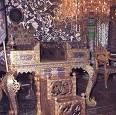

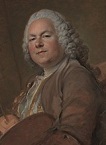
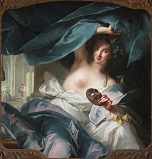
1739 500K die in Ireland this year and next because of a potato crop failure coupled with extremely cold winters - the woes of a 1-crop economy? On Jan. 1 French explorer Jean Baptiste Charles Bouvet de Lozier discovers 49 sq. km Bouvet (Liverpool) (Lindsay) Island SSW of the Cape of Good Hope (most remote island on Earth, 1K mi. from Queen Maud Land), after which his crew falls ill and they return to France; too bad, they don't accurately locate the island, or even circumnavigate it to prove it's an island, causing English capt. James Cook to try to find it in 1772, and when he gives up it takes until 1808, when Capt. James Lindsay of the English Enderby Co. whaler Snow Swan spots it and fixes its position, after which on Dec. 10, 1825 Capt. Norris of the Enderby Co. whalers Sprightly and Lovely lands on it and names it Liverpool Island; the first party to stay on the island is a Norwegian expedition led by Lars Christensen in 1927, who claims it for Norway; on Sept. 22, 1979 the Vela Incident sees a satellite record a double flash of light (nuke or meteor) between the island and Prince Edward Islands. In Jan. the Methodists hold a conference in England to formalize Methodism. On Feb. 13 the Mughals under emperor (since 1719) Mohammed Shah are decisively defeated by the Persians under Nadir Shah at the Battle of Karnal 68 mi. N of Delhi; on Mar. 11 the Persians occupy Delhi and massacre 30K-110K, causing Mohammed Shah to beg for mercy and hand over the keys to the royal treasury, after which strutting Nadir Shah leaves on May 5 with plunder incl. the totally tacky Peacock Throne, and the Koh-i-Noor (Pers. "mountain of light") Diamond, stopping taxation in Persia for three years after he returns - stick a fork in the Mughal Empire? Three separate violent uprisings by black slaves attempting to escape to Fla. occur in South Carolina; on Sept. 9 the Stono Uprising (20 mi. W of Charleston) kills 30 whites, after which enraged planters take the slaves participating in it and "Cutt off their heads and set them up at every Mile Post", killing 44. On Sept. 18 the Fourth Russo-Turkish War (begun 1735) ends when HRE Charles VI signs the separate Treaty of Belgrade as the Turks approach Belgrade, ceding N Serbia to Turkey. In Sept. King George II integrates the Scottish Highland Black Watch into the British army; they are officially designated the 42nd (Highland) Regiment in 1751, and Royal Highlanders in 1767 after service in North Am. In the fall George Whitefield arrives in Philadelphia and preaches to record crowds of 6K, causing Benjamin Franklin to empty his pockets into his collection plate and become friends with him, then build a new bldg. just to contain his audience, which later becomes the U. of Penn.; Whitefield then goes to New England, where he releases "Gales of Heavenly Wind" to the crowds - in Boston, by any chance? On Oct. 17 the Foundling Hospital is founded in London by Capt. Thomas Coram (1668-1751) to take care of all those homeless abandoned kids. Spanish depredations on our estates, persons, and ears, oh my? If it had only been in 1738 it would have been the Take a Muff Year? On Oct. 22 Britain declares war on Spain after PM Robert Walpole's jingoistic opposition's star witness, Welsh trader Capt. Robert Jenkins (1700-?) tells Parliament how the *!?*! Spanish had cut off his ear in 1731 while searching his ship for contraband, with the soundbyte: "I recommended my soul to God and my cause to my country" as he shows it to them in a box, causing Robert Walpole to half-heartedly declare the War of Jenkins' Ear (ends Oct. 18, 1748); in actuality it had been cut off by a pirate, who was punished by the Spanish; on Nov. 22 the English capture the silver-exporting town of Puerto (Porto) Bello in Panama; meanwhile Ga. and S.C. colonists fight Spaniards. Ecuador becomes a part of New Granada. A tax revolt of 84K farmers takes place in the Japanese province of Iwaki. Christina, Del. (founded 1638) is renamed Wilmington in honor of the earl of Wilmington. The first wild red rose-like Camellias (shrubs of the Tea family) arrive in Europe from the Far East. Poor Richard's Almanack for 1739. Anne Robert Jacques Turgot finishes his draft of a Plan of Paris. The first Bible trans. in Estonian is pub. Architecture: The Karlkirche in Vienna (begun 1716) is finished. George Dance begins the Mansion House in London (finished 1752). The twin towers of Westminster Abbey are completed. Inventions: Leonhard Euler of Switzerland invents the Tonnetz (Ger. "tone network") to show tonal pitch space in 2 dims. Plunket Fleeson of Philadelphia, Penn. invents Wallpaper, stamping designs on paper with woodblocks, painting them in by hand, then advertising "paper hangings" in the Penn. Gazette - plunket and fleece 'em? Nonfiction: Anon., Standard Histories (24 Dynasties) (1739-46); another little Qing Dynasty production. Philippe Buache, Map of the World; used to bolster claims of a lost civilization in Antarctica. J.F. Gronovius, Flora Virginica. David Hume (1711-76), A Treatise of Human Nature (2 vols.) (1739-40); his magnum opous, claiming that all contents of mind are solely built from sense experiences, pioneering Logical Positivism (Empiricism); ignored by the public, causing him to call it "dead-born", until Immanuel Kant credits him with awakening him from "dogmatic slumbers" about 1770; "There is more to be learned from each page of David Hume than from the collected philosophical works of Hegel, Herbart and Schleiermacher taken together" (Arthur Schopenhauer). Crown Prince Frederick of Prussia (Frederick the Great) (1712-86) Anti-Machiavell. Elizabeth Justice, A Voyage to Russia; the first pub. travel account by an Englishwoman. William Law (1686-1761), The Grounds and Reasons of Christian Regeneration, or the New Birth. Johann Mattheson, Der Vollkommene Kapellmeister; treatise on conducting. Joe Miller (1684-1738) Joe Miller's Jests, or the Wit's Vade Mecum (posth.); 247 jests allegedly by a London Drury Lane stage comedian; ghostwritten by John Mottley. John Oldmixon (1673-1742), History of England During the Reigns of Henry VIII, Edward VI, Mary and Elizabeth. John Winthrop IV (1714-79), Notes on Sunspots. Music: Francisco Almeida, La Spinalba. G.F. Handel (1685-1759), Giove in Argo (HWV A14) (Jupiter in Argos) (opera) (King's Theatre, London) (May 1); libretto by Lucchini; stars Gustavus Waltz as Jupiter; flops after 2 performances; Saul (HWV 53) (oratorio) (King's Theatre, London); libretto by Charles Jennens (1700-73); Israel in Egypt (HWV 54) (oratorio) (King's Theatre, London); libretto by Charles Jennens; Ode for St. Cecilia's Day (HWV 56) (The Trumpet's Loud Clangor). Jean-Philippe Rameau (1683-1764), Les Fetes d'Hebe (Les Fêtes d'Hébé), ou Les Talents Lyriques (The Festivities of Hebe, or The Lyric Talents) (opera) (Paris Opera) (May 21); libretto by Antoine Gautier de Montdorge (1707-68); incl. Ouverture, Volons sur les Bords de la Seine, Gavottes, Accourez, Riante Jeunesse, Air gai pour Zephyr et les Graces; Dardanus (opera) (Academie de Musique, Paris) (Nov. 19) (26 perf.); libretto by Charles-Antoine Leclerc de la Bruere; after the sea monster scene is criticized, it is rev. in 1744 and 1760; incl. Ouverture, Tambourins. Domenico Scarlatti (1685-1757), Cat Fugue in G minor. Art: Francois Boucher (1703-70), The Breakfast (Morning Coffee). Jean-Baptiste-Simeon Chardin (1699-1779), Return from Market; Saying Grace. Jean-Marc Nattier (1685-1766), Thalia, Muse of Comedy. Poetry: Peter Dass (1647-1708), Nordlands Trompet (The Trumpet of Nordland) (posth.); his most famous poem. Jonathan Swift (1667-1745), Verses on the Death of Doctor Swift. Births: Scottish physicist (inventor of the siren) John Robison (d. 1805) on Feb. 4 in Boghall, Stirlingshire; educated at the U. of Glasgow. German poet-musician-composer-journalist (alcoholic) Christian Friedrich Daniel Schubart (d. 1791) on Mar. 24 in Obersontheim, Swabia; educated at the U. of Erlangen (when not boozed-out?). English civil engineer Capt. Elias Durnford (d. 1794) on June 13 in Ringwood, Hampshire. U.S. Dem.-Repub. vice-pres. #4 (twice) (1805-13) and N.Y. gov. #1 (1777-95) and #3 (1801-4) George Clinton (d. 1812) on July 26 in in Little Britain, Ulster County, N.Y.; son of Irish immigrants; brother of Gen. James Clinton (1733-1813); uncle of DeWitt Clinton (1769-1828). British lt. col. Archibald Campbell (d. 1791) on Aug. 24 in Argyllshire, Scotland. Am. S.C. gov. #1 and #3 (1776-8), Supreme Court justice #2 (1790-1), and chief justice #2 (1795) John Rutledge (d. 1800) on Sept. 17 near Charleston, S.C..; Scots-Irish immigrant father, English descent mother; brother of Edward Rutledge (1849-1800); educated at Middle Temple, London. Russian field marshal and statesman Prince Grigori Alexandrovich Potemkin (Potemkin-Tavricheski) (d. 1791) on Oct. 11 (Sept. 30 Old Style) in Khizovo (Khizov), Belarus; favorite of Catherine II the Great. Austrian composer-violinist August Karl (Carl) Ditters von Dittersdorf (d. 1799) on Nov. 2 in Laimmgrube (modern-day Mariahilf), Vienna. French playwright-critic Jean-Francois de La Harpe (Delharpe) (d. 1803) on Nov. 20 in Paris. French-Am. statesman Pierre Samuel du Pont de Nemours (d. 1817) on Dec. 14 in Paris; emigrates to the U.S. in 1799; changes "Dupont" to "du Pont" and adds the "de Nemours" because there are so many other Duponts in France; disciple of physiocrat economist Francois Quesnay; father of Victor Marie du Pont (1767-1827) and Eleuthere Irenee du Pont (1711-1834). English cartographer-engraver John Spilsbury (d. 1769). Am. diplomat William Lee (d. 1795) in Stratford Hall Planation, Westmoreland County, Va.; son of Thomas Lee (1690-1750) and Hannah Harrison Ludwell (1701-50); brother of Arthur Lee (1740-92), Francis Lightfoot Lee (1734-97), and Richard Henry Lee (1732-94). French neoclassical Arc de Trimphe architect Jean Francois Therese Chalgrin (d. 1811). English naturalist William Bartram (d. 1823). Deaths: German opera composer Reinhard Keiser (b. 1674) on Sept. 12 in Hamburg. Am. Yale College founder Jeremiah Dummer (b. 1681) on May 19 in Essex, England; dies unmarried - dummer or smarter? English silk machine inventor Sir Thomas Lombe (b. 1685) on Jan. 3. German painter-architect Cosmas Damian Asam (b. 1686) on May 10 in Munich. Italian composer Benedetto Marcello (b. 1686). English dramatist George Lillo (b. 1693) on Sept. 4. French chemist Charles Francois de Cisternay Du Fay (b. 1698) on July 16 in Paris (smallpox). Brazilian-born Portuguese dramatist Antonio Jose da Silva (b. 1705) on Oct. 18; executed by the Inquisition. English highwayman Dick Turpin (b. 1706).